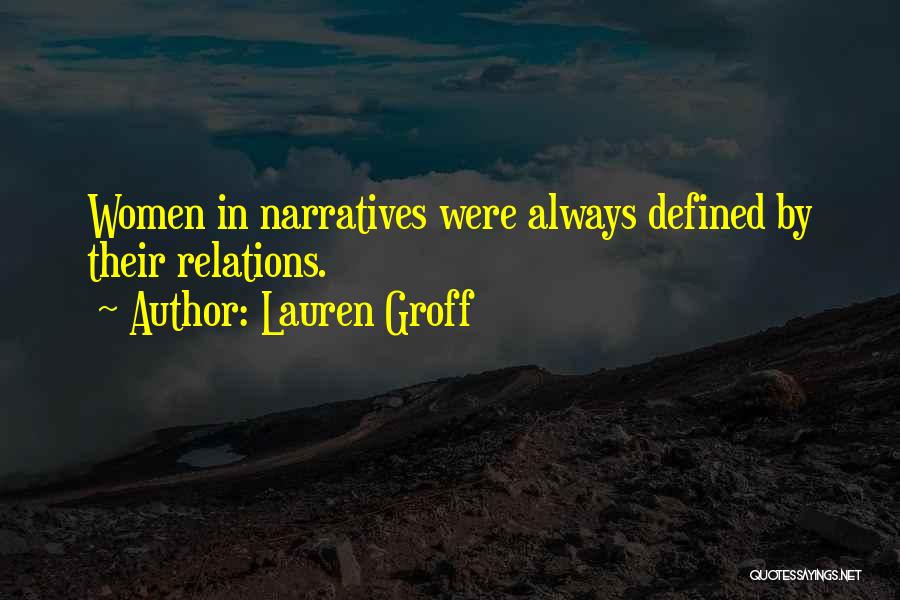Quotes & Sayings About Narratives
Enjoy reading and share 100 famous quotes about Narratives with everyone.
Top Narratives Quotes
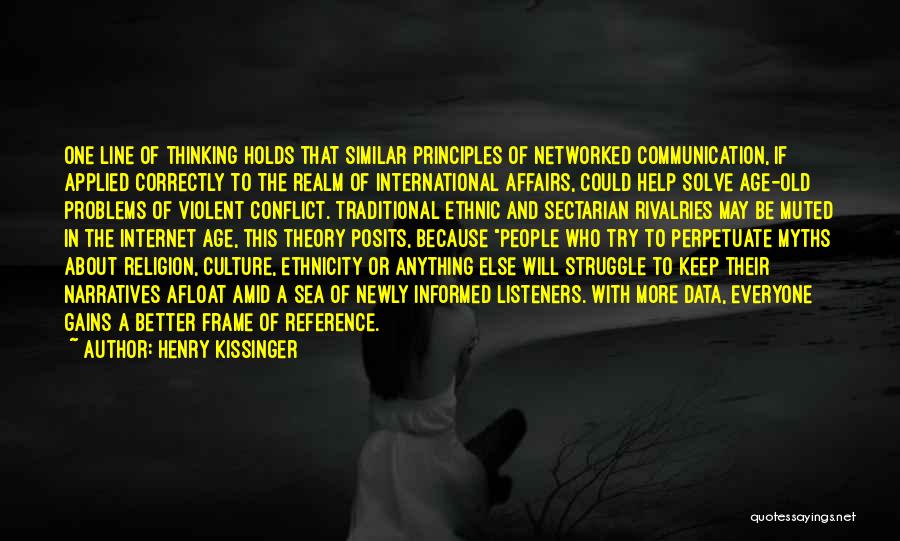
One line of thinking holds that similar principles of networked communication, if applied correctly to the realm of international affairs, could help solve age-old problems of violent conflict. Traditional ethnic and sectarian rivalries may be muted in the Internet age, this theory posits, because "people who try to perpetuate myths about religion, culture, ethnicity or anything else will struggle to keep their narratives afloat amid a sea of newly informed listeners. With more data, everyone gains a better frame of reference. — Henry Kissinger
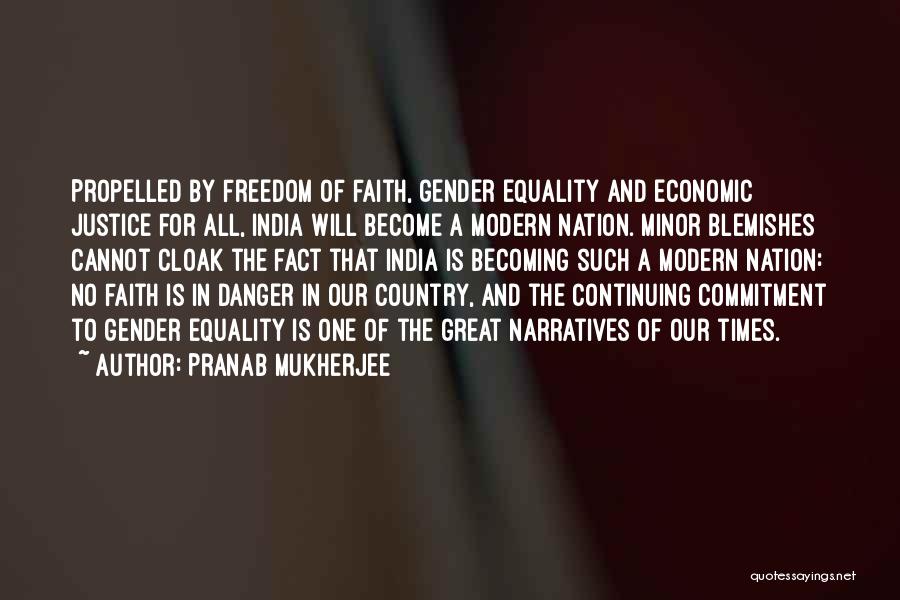
Propelled by freedom of faith, gender equality and economic justice for all, India will become a modern nation. Minor blemishes cannot cloak the fact that India is becoming such a modern nation: no faith is in danger in our country, and the continuing commitment to gender equality is one of the great narratives of our times. — Pranab Mukherjee
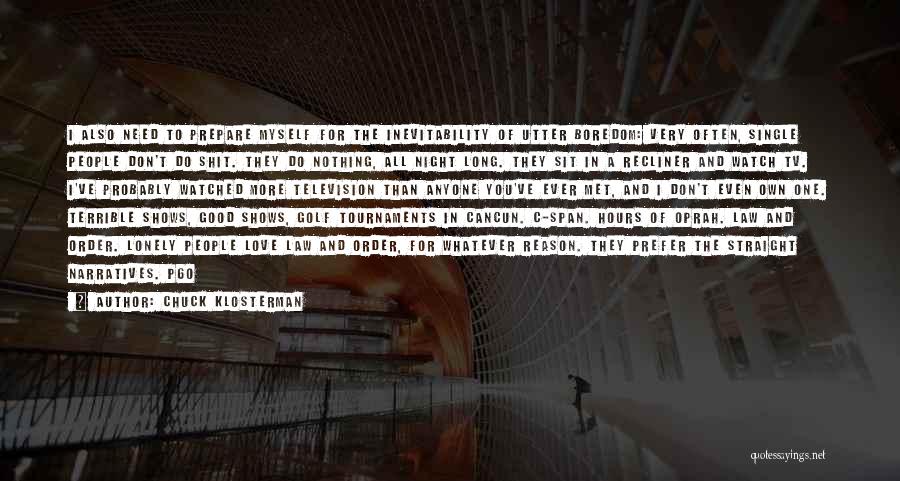
I also need to prepare myself for the inevitability of utter boredom: Very often, single people don't do shit. They do nothing, all night long. They sit in a recliner and watch TV. I've probably watched more television than anyone you've ever met, and I don't even own one. Terrible shows, good shows, Golf tournaments in Cancun. C-SPAN. Hours of Oprah. Law and Order. Lonely people love Law and Order, for whatever reason. They prefer the straight narratives. p60 — Chuck Klosterman
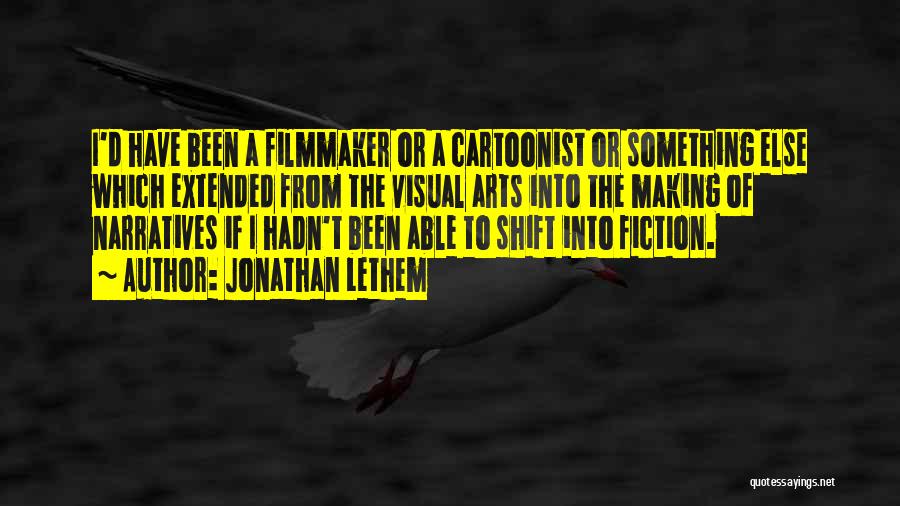
I'd have been a filmmaker or a cartoonist or something else which extended from the visual arts into the making of narratives if I hadn't been able to shift into fiction. — Jonathan Lethem
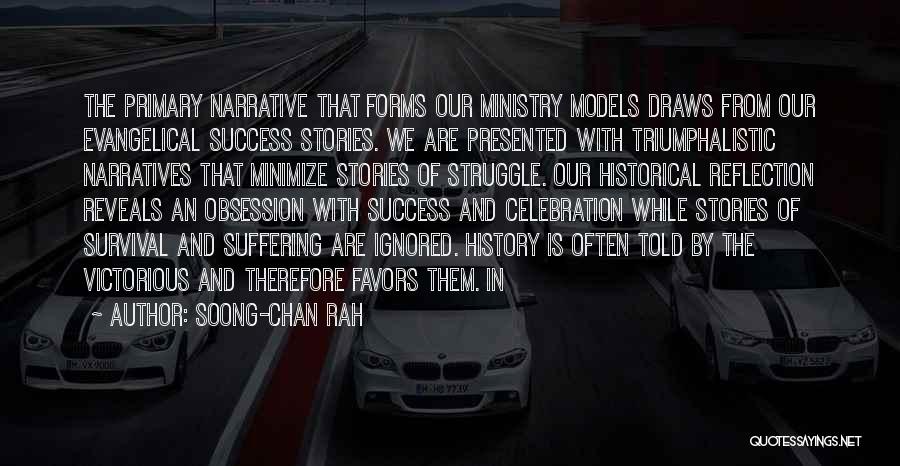
The primary narrative that forms our ministry models draws from our evangelical success stories. We are presented with triumphalistic narratives that minimize stories of struggle. Our historical reflection reveals an obsession with success and celebration while stories of survival and suffering are ignored. History is often told by the victorious and therefore favors them. In — Soong-Chan Rah
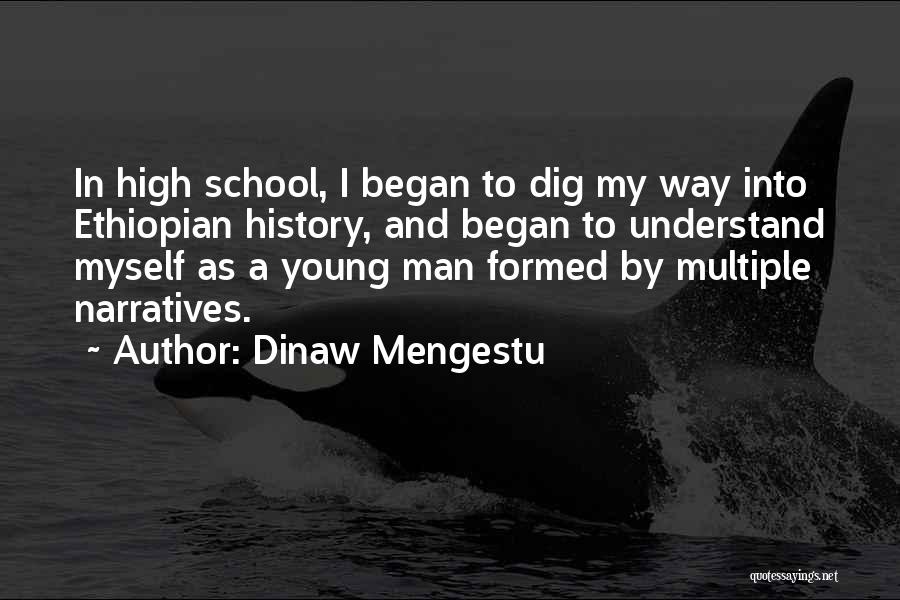
In high school, I began to dig my way into Ethiopian history, and began to understand myself as a young man formed by multiple narratives. — Dinaw Mengestu
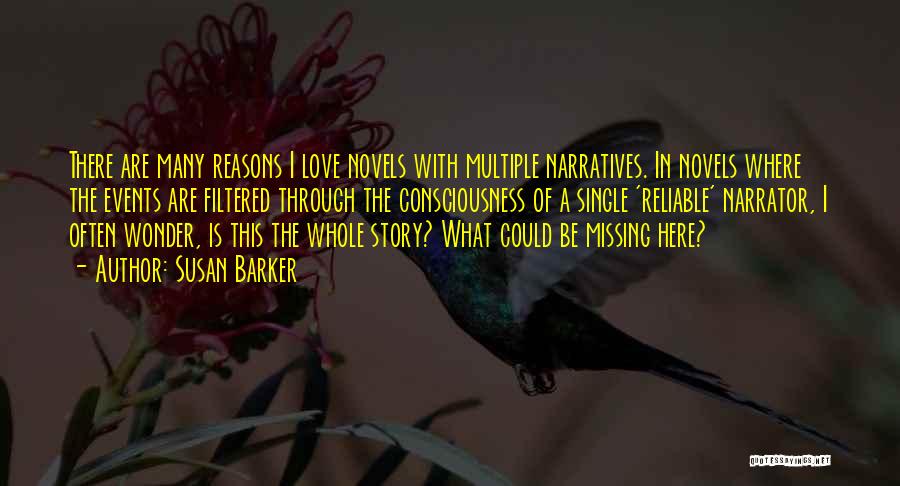
There are many reasons I love novels with multiple narratives. In novels where the events are filtered through the consciousness of a single 'reliable' narrator, I often wonder, is this the whole story? What could be missing here? — Susan Barker
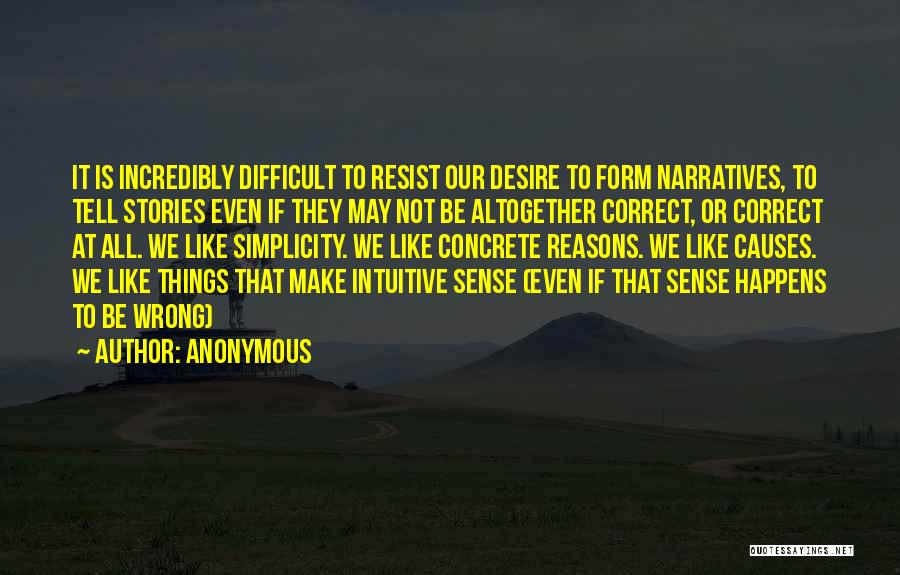
It is incredibly difficult to resist our desire to form narratives, to tell stories even if they may not be altogether correct, or correct at all. We like simplicity. We like concrete reasons. We like causes. We like things that make intuitive sense (even if that sense happens to be wrong) — Anonymous
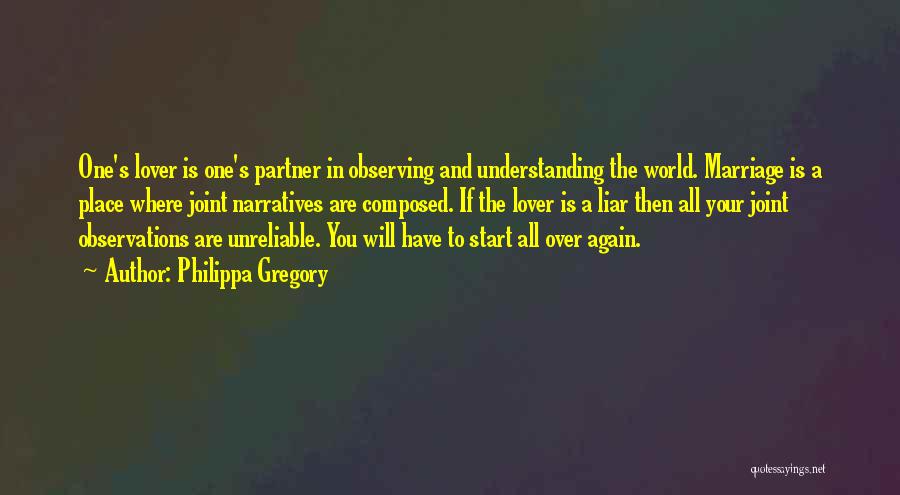
One's lover is one's partner in observing and understanding the world. Marriage is a place where joint narratives are composed. If the lover is a liar then all your joint observations are unreliable. You will have to start all over again. — Philippa Gregory
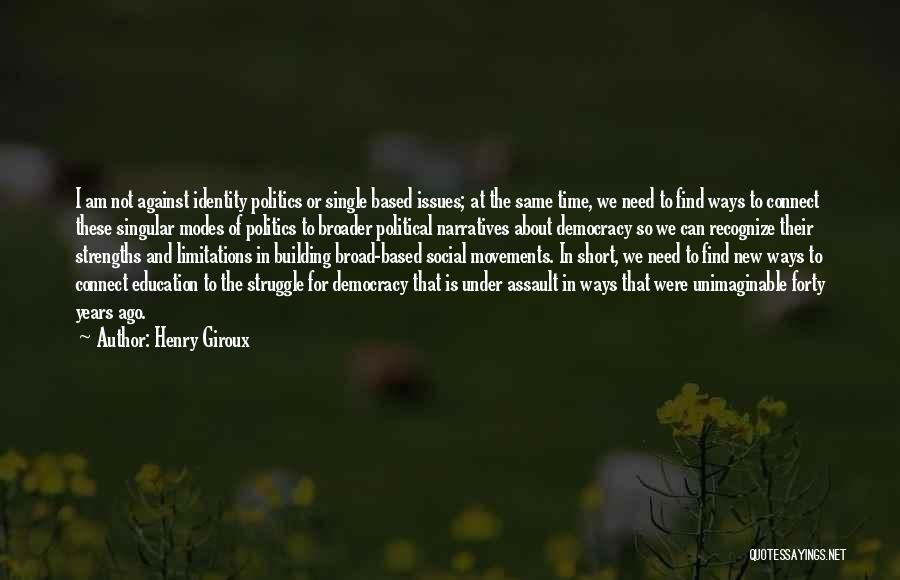
I am not against identity politics or single based issues; at the same time, we need to find ways to connect these singular modes of politics to broader political narratives about democracy so we can recognize their strengths and limitations in building broad-based social movements. In short, we need to find new ways to connect education to the struggle for democracy that is under assault in ways that were unimaginable forty years ago. — Henry Giroux
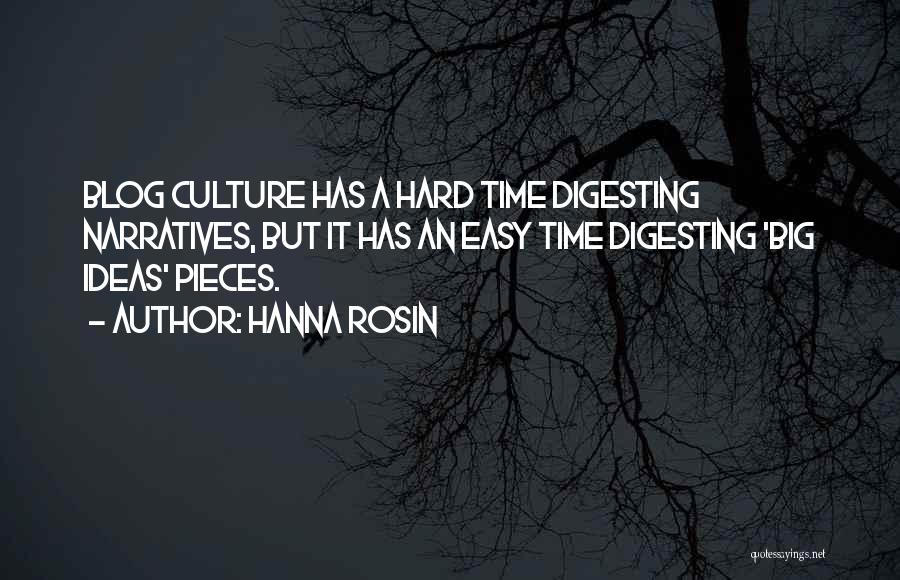
Blog culture has a hard time digesting narratives, but it has an easy time digesting 'big ideas' pieces. — Hanna Rosin
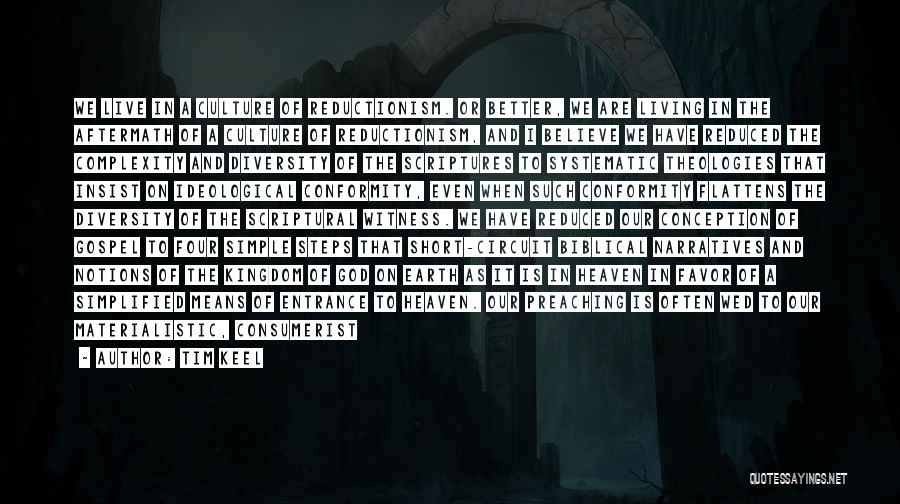
We live in a culture of reductionism. Or better, we are living in the aftermath of a culture of reductionism, and I believe we have reduced the complexity and diversity of the Scriptures to systematic theologies that insist on ideological conformity, even when such conformity flattens the diversity of the Scriptural witness. We have reduced our conception of gospel to four simple steps that short-circuit biblical narratives and notions of the kingdom of God on earth as it is in heaven in favor of a simplified means of entrance to heaven. Our preaching is often wed to our materialistic, consumerist cultural assumptions, and sermons are subsequently reduced to delivering messages that reinforce the worst of what American culture produces: self-centered end users who believe that God is a resource that helps an individual secure what amounts to an anemic and culturally bound understanding of the 'abundant life. — Tim Keel
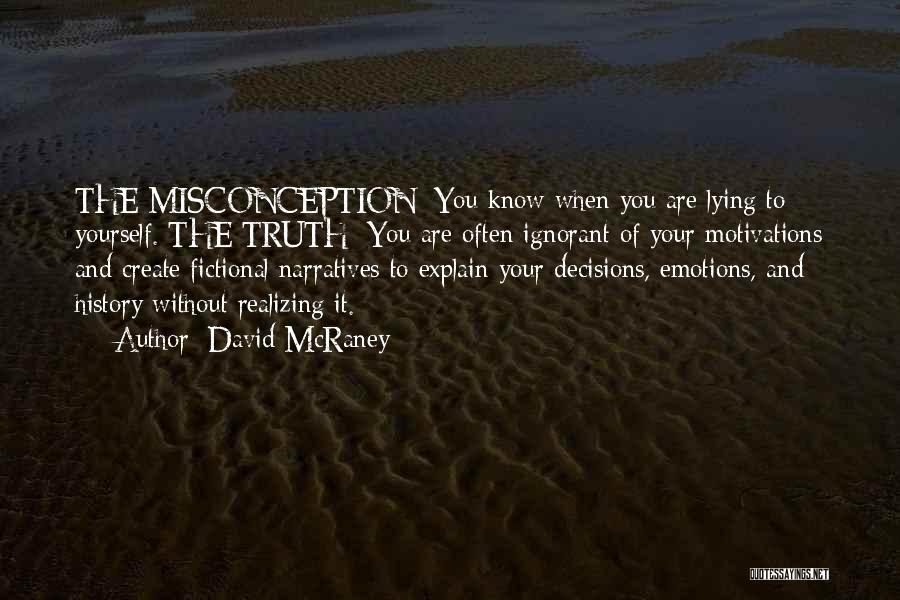
THE MISCONCEPTION: You know when you are lying to yourself. THE TRUTH: You are often ignorant of your motivations and create fictional narratives to explain your decisions, emotions, and history without realizing it. — David McRaney

We normally think of history as one catastrophe after another, war followed by war, outrage by outrage - almost as if history were nothing more than all the narratives of human pain, assembled in sequence. And surely this is, often enough, an adequate description. But history is also the narratives of grace, the recountings of those blessed and inexplicable moments when someone did something for someone else, saved a life, bestowed a gift, gave something beyond what was required by circumstance. — Thomas Cahill
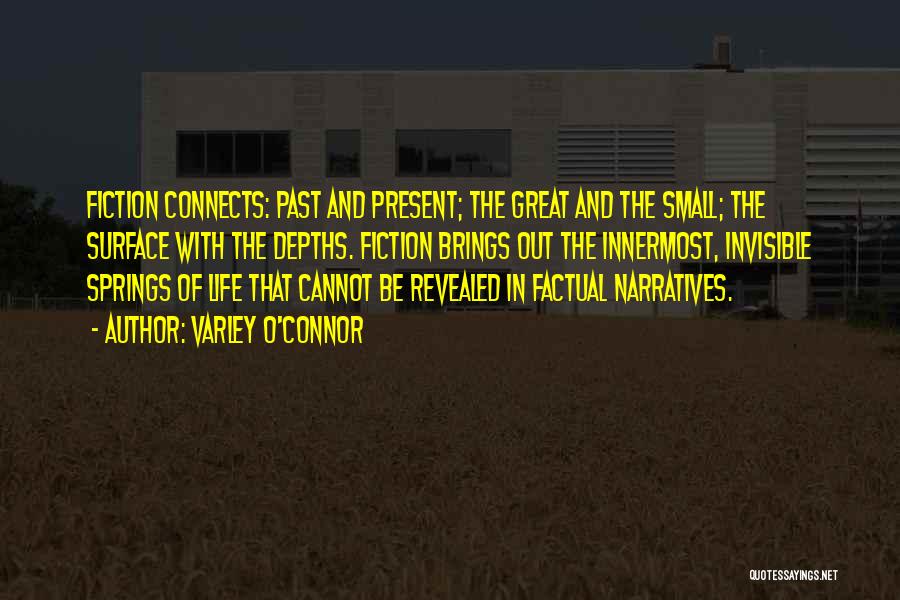
Fiction connects: past and present; the great and the small; the surface with the depths. Fiction brings out the innermost, invisible springs of life that cannot be revealed in factual narratives. — Varley O'Connor

Most people aren't familiar enough with what actually goes on in professional wrestling to know just how badly women are treated in WWE narratives. — Jackson Katz
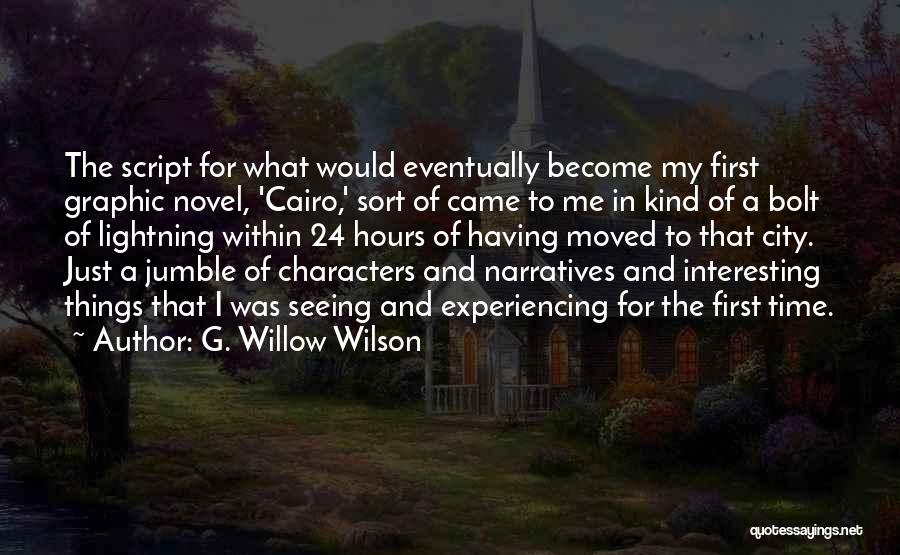
The script for what would eventually become my first graphic novel, 'Cairo,' sort of came to me in kind of a bolt of lightning within 24 hours of having moved to that city. Just a jumble of characters and narratives and interesting things that I was seeing and experiencing for the first time. — G. Willow Wilson
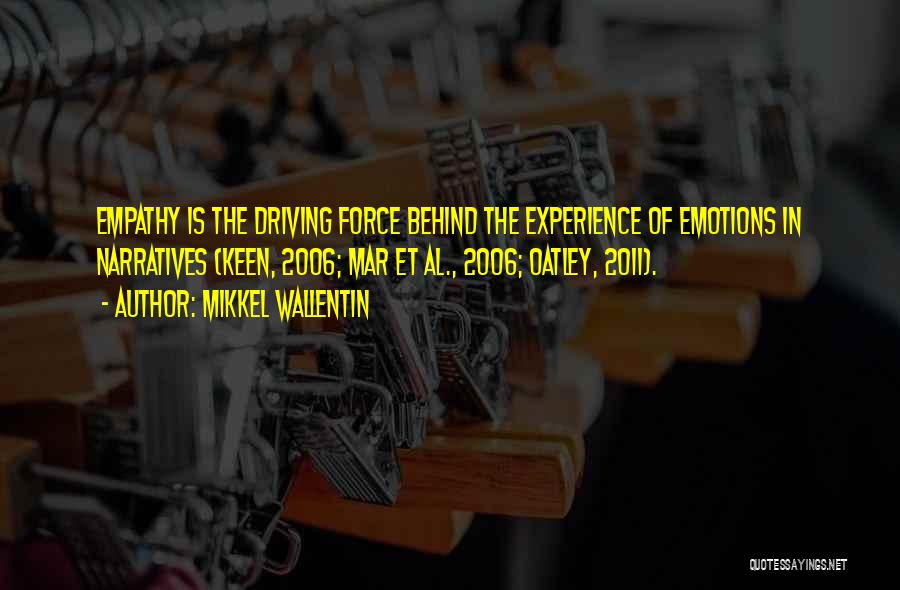
Empathy is the driving force behind the experience of emotions in narratives (Keen, 2006; Mar et al., 2006; Oatley, 2011). — Mikkel Wallentin
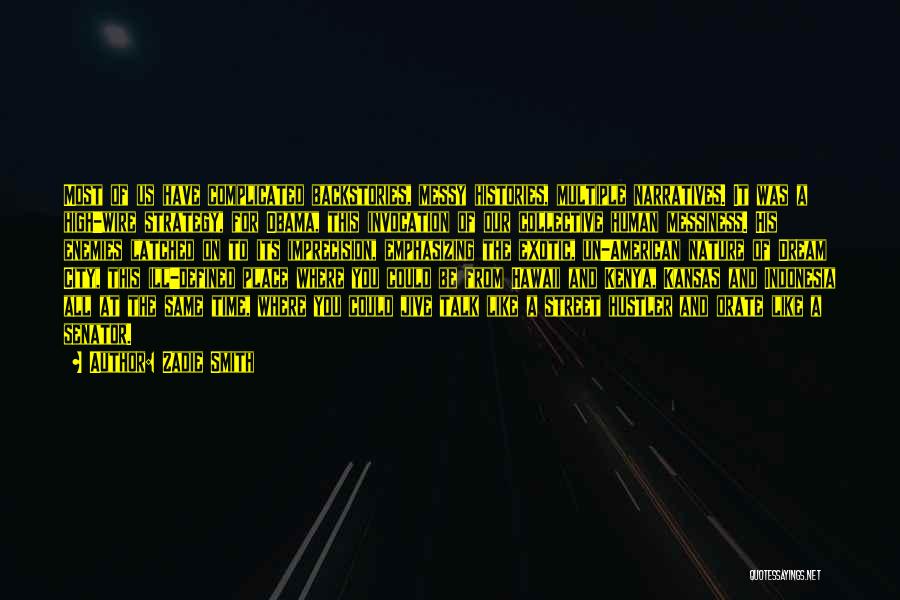
Most of us have complicated backstories, messy histories, multiple narratives. It was a high-wire strategy, for Obama, this invocation of our collective human messiness. His enemies latched on to its imprecision, emphasizing the exotic, un-American nature of Dream City, this ill-defined place where you could be from Hawaii and Kenya, Kansas and Indonesia all at the same time, where you could jive talk like a street hustler and orate like a senator. — Zadie Smith
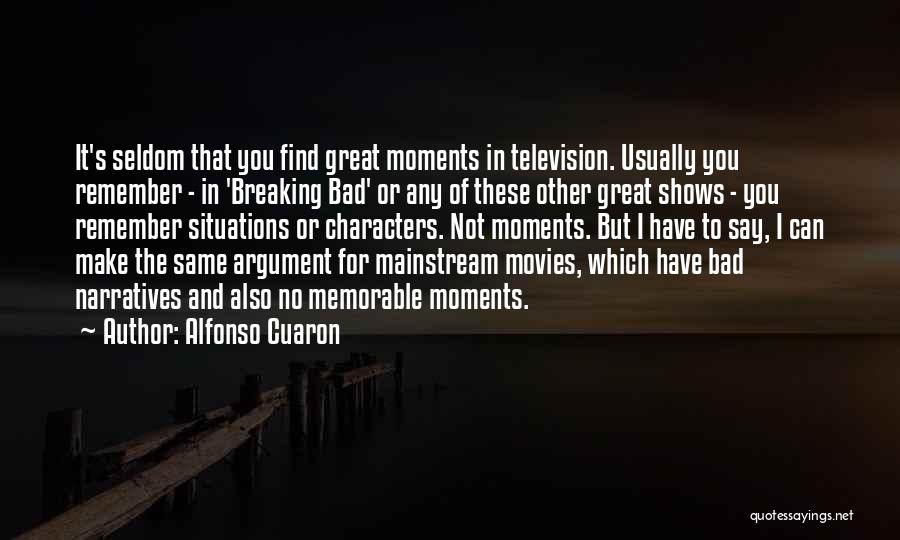
It's seldom that you find great moments in television. Usually you remember - in 'Breaking Bad' or any of these other great shows - you remember situations or characters. Not moments. But I have to say, I can make the same argument for mainstream movies, which have bad narratives and also no memorable moments. — Alfonso Cuaron

Capitalism is not merely a system for the efficient production and distribution of goods and services; it also incarnates and promotes a particular moral order, an institutionalized normative worldview comprising and fostering particular assumptions, narratives, commitments, beliefs, values, and goals. — Christian Smith
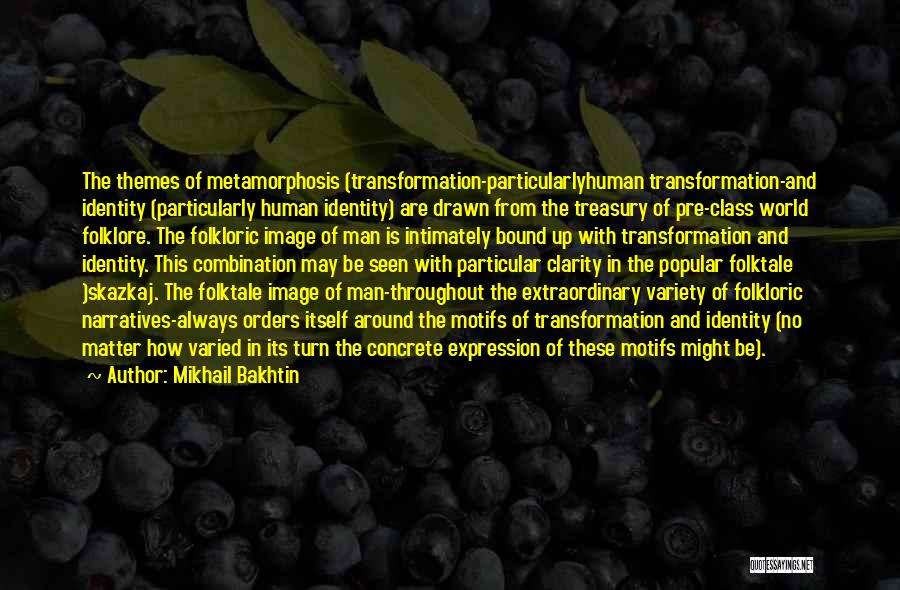
The themes of metamorphosis (transformation-particularly
human transformation-and identity (particularly human identity) are drawn from the treasury of pre-class world folklore. The folkloric image of man is intimately bound up with transformation and identity. This combination may be seen with particular clarity in the popular folktale )skazkaj. The folktale image of man-throughout the extraordinary variety of folkloric narratives-always orders itself around the motifs of transformation and identity (no matter how varied in its turn the concrete expression of these motifs might be). — Mikhail Bakhtin
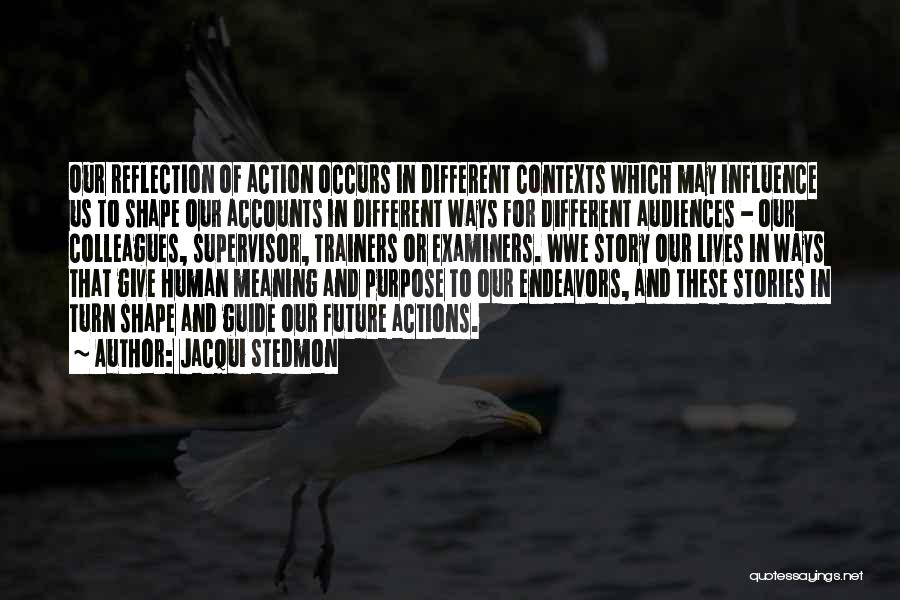
Our reflection of action occurs in different contexts which may influence us to shape our accounts in different ways for different audiences - our colleagues, supervisor, trainers or examiners. Wwe story our lives in ways that give human meaning and purpose to our endeavors, and these stories in turn shape and guide our future actions. — Jacqui Stedmon
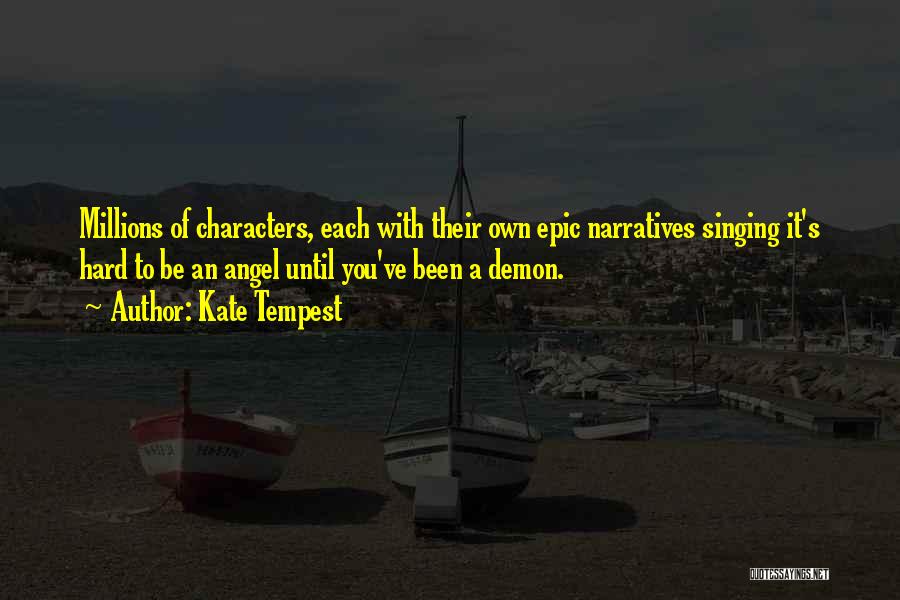
Millions of characters, each with their own epic narratives singing it's hard to be an angel until you've been a demon. — Kate Tempest

The whole Christmas story was probably a later addition to the gospel narratives, presented only by the authors of Matthew and Luke. Mark and John seem never to have heard of the manger in Bethlehem, the Massacre of the Innocents, the hovering star, the three wise men, and so forth. — Jay Parini
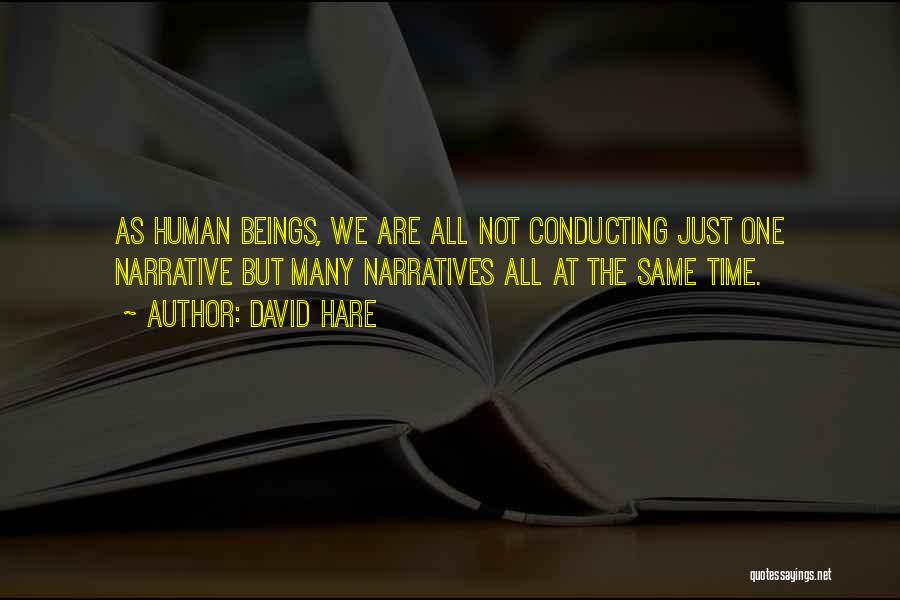
As human beings, we are all not conducting just one narrative but many narratives all at the same time. — David Hare
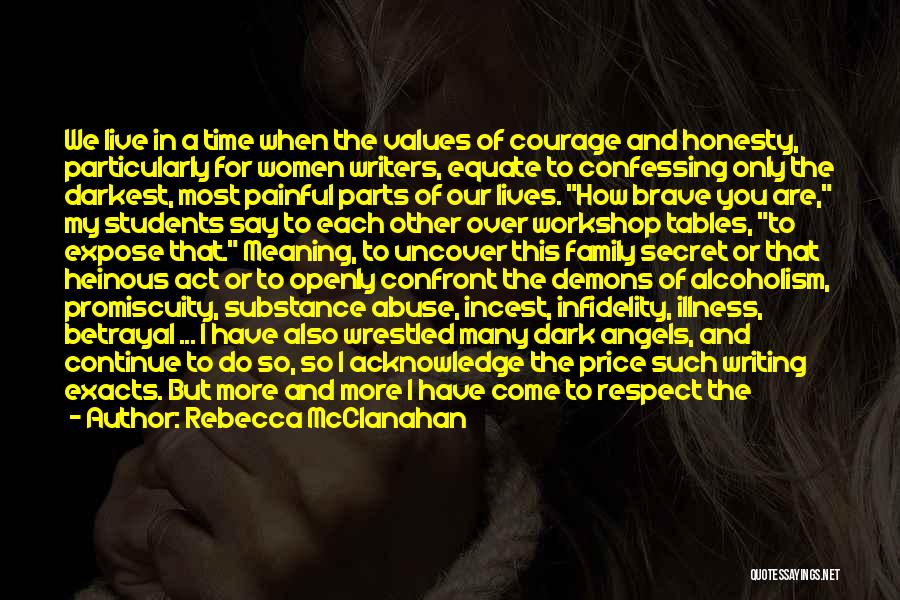
We live in a time when the values of courage and honesty, particularly for women writers, equate to confessing only the darkest, most painful parts of our lives. "How brave you are," my students say to each other over workshop tables, "to expose that." Meaning, to uncover this family secret or that heinous act or to openly confront the demons of alcoholism, promiscuity, substance abuse, incest, infidelity, illness, betrayal ... I have also wrestled many dark angels, and continue to do so, so I acknowledge the price such writing exacts. But more and more I have come to respect the honesty and courage required to recognize the bright angels when they appear in our memory, and to allow them equal space in our narratives. — Rebecca McClanahan
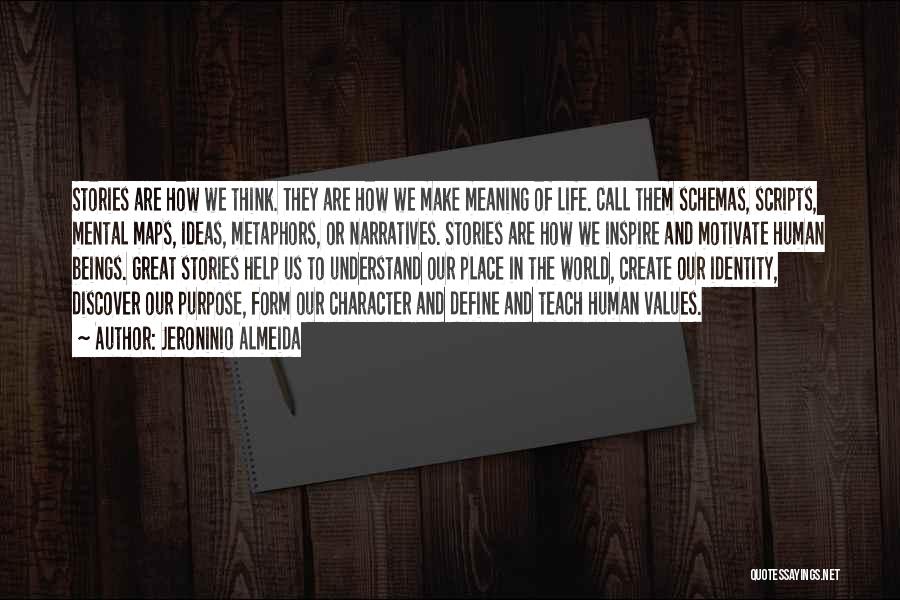
Stories are how we think. They are how we make meaning of life. Call them schemas, scripts, mental maps, ideas, metaphors, or narratives. Stories are how we inspire and motivate human beings. Great stories help us to understand our place in the world, create our identity, discover our purpose, form our character and define and teach human values. — Jeroninio Almeida
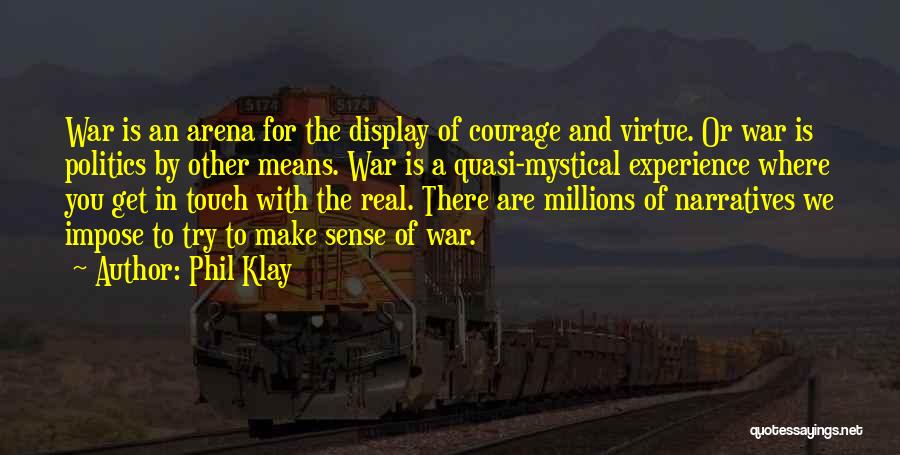
War is an arena for the display of courage and virtue. Or war is politics by other means. War is a quasi-mystical experience where you get in touch with the real. There are millions of narratives we impose to try to make sense of war. — Phil Klay
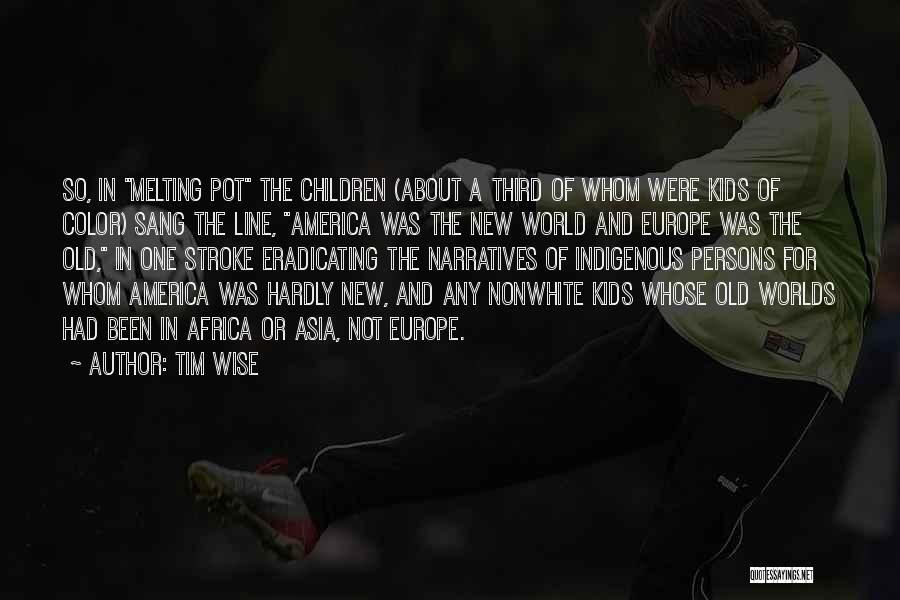
So, in "Melting Pot" the children (about a third of whom were kids of color) sang the line, "America was the new world and Europe was the old," in one stroke eradicating the narratives of indigenous persons for whom America was hardly new, and any nonwhite kids whose old worlds had been in Africa or Asia, not Europe. — Tim Wise
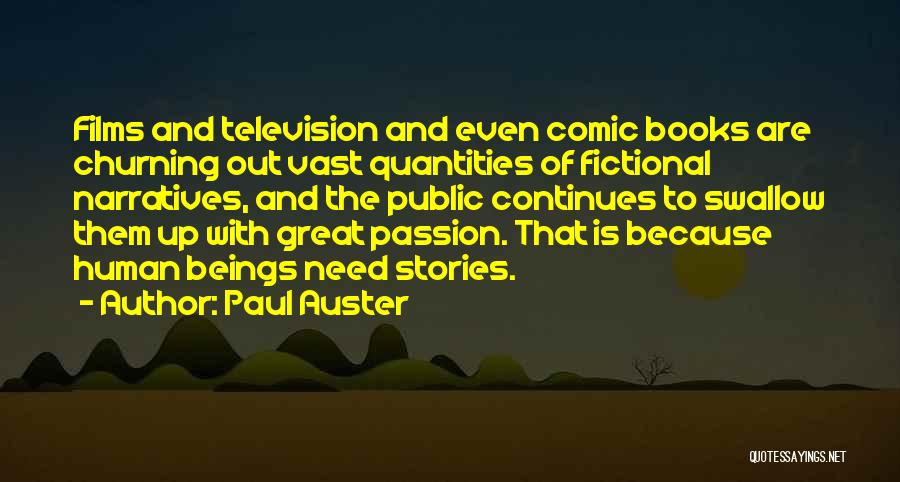
Films and television and even comic books are churning out vast quantities of fictional narratives, and the public continues to swallow them up with great passion. That is because human beings need stories. — Paul Auster
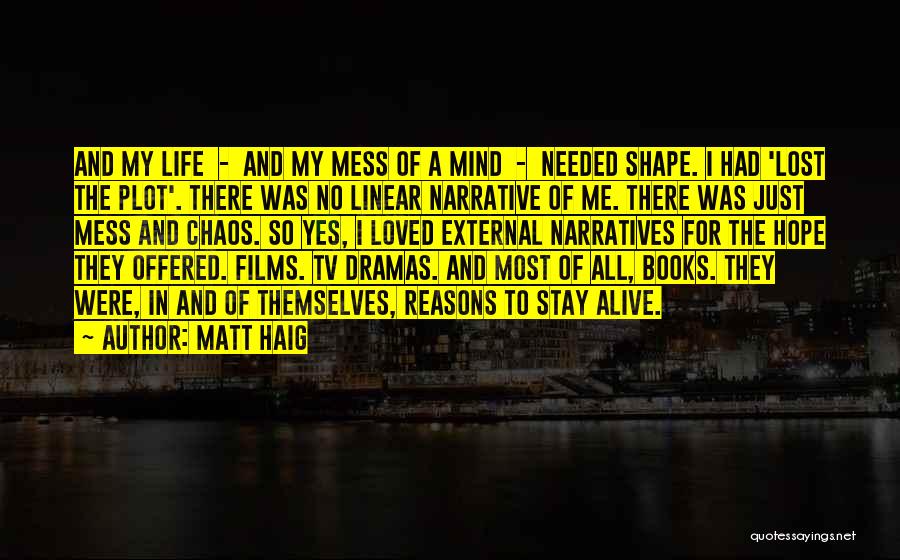
And my life - and my mess of a mind - needed shape. I had 'lost the plot'. There was no linear narrative of me. There was just mess and chaos. So yes, I loved external narratives for the hope they offered. Films. TV dramas. And most of all, books. They were, in and of themselves, reasons to stay alive. — Matt Haig
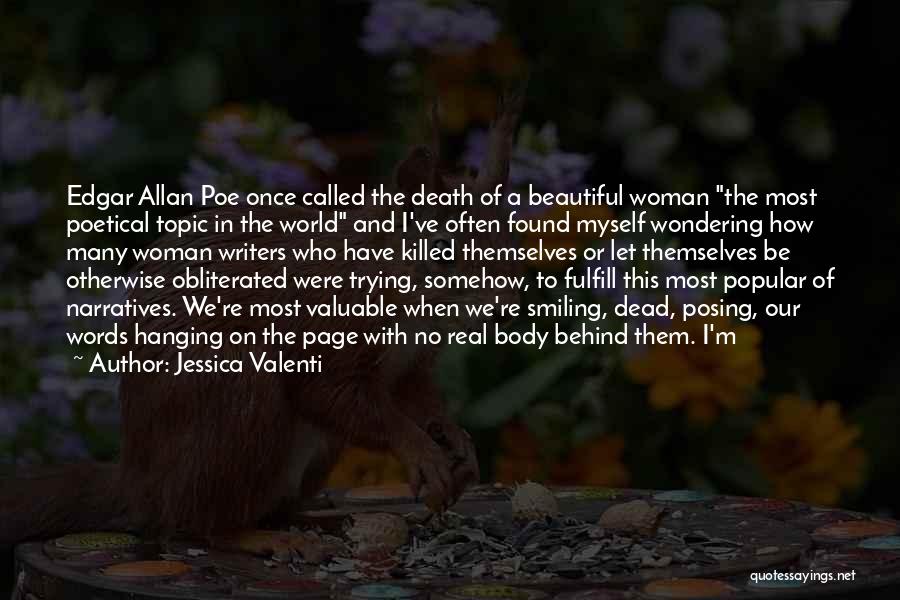
Edgar Allan Poe once called the death of a beautiful woman "the most poetical topic in the world" and I've often found myself wondering how many woman writers who have killed themselves or let themselves be otherwise obliterated were trying, somehow, to fulfill this most popular of narratives. We're most valuable when we're smiling, dead, posing, our words hanging on the page with no real body behind them. I'm — Jessica Valenti
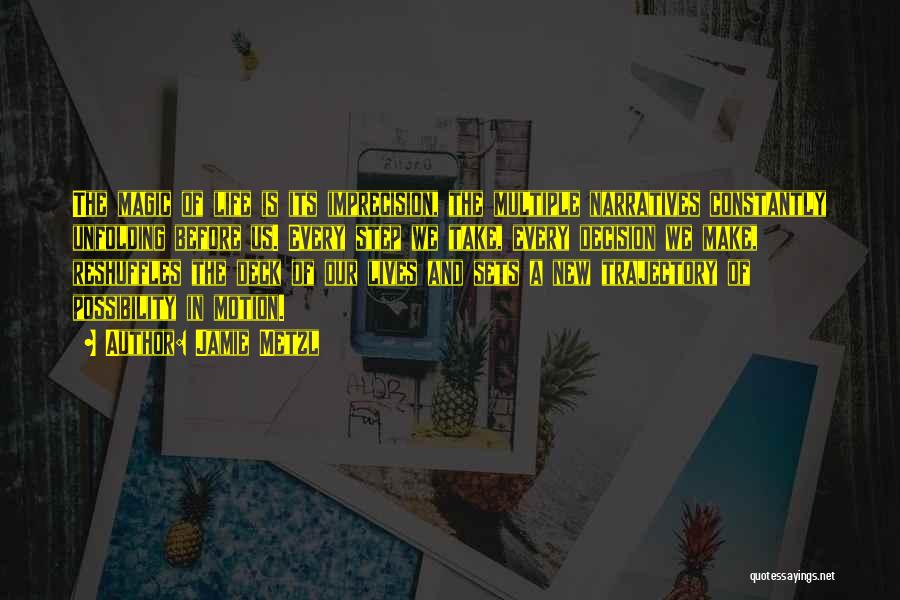
The magic of life is its imprecision, the multiple narratives constantly unfolding before us. Every step we take, every decision we make, reshuffles the deck of our lives and sets a new trajectory of possibility in motion. — Jamie Metzl
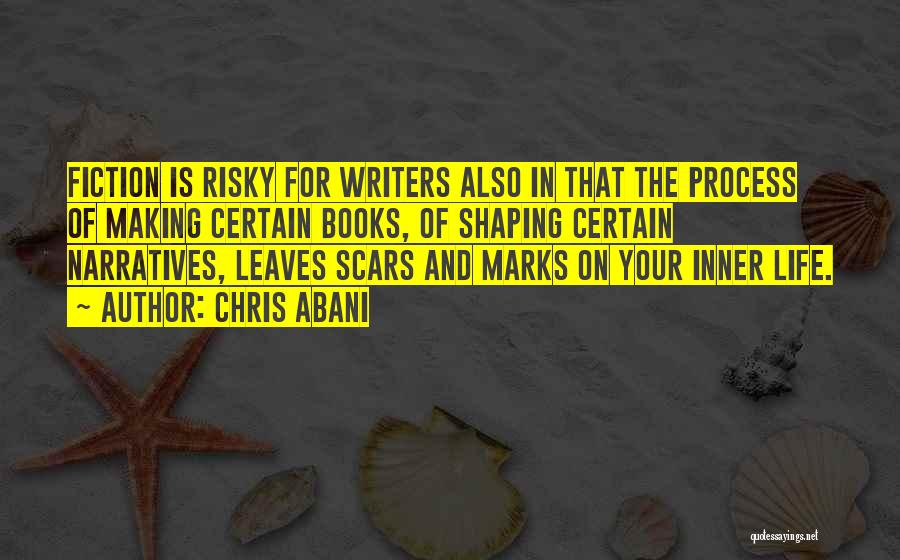
Fiction is risky for writers also in that the process of making certain books, of shaping certain narratives, leaves scars and marks on your inner life. — Chris Abani
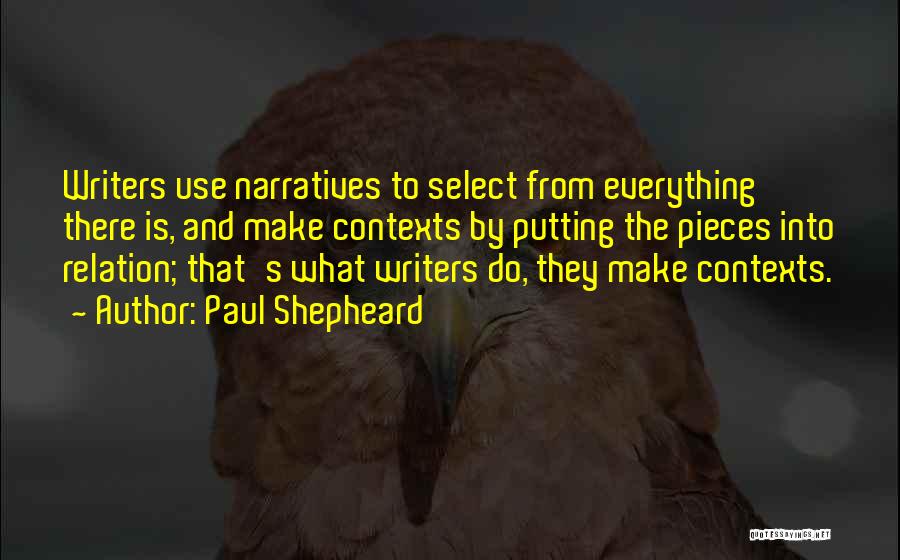
Writers use narratives to select from everything there is, and make contexts by putting the pieces into relation; that's what writers do, they make contexts. — Paul Shepheard
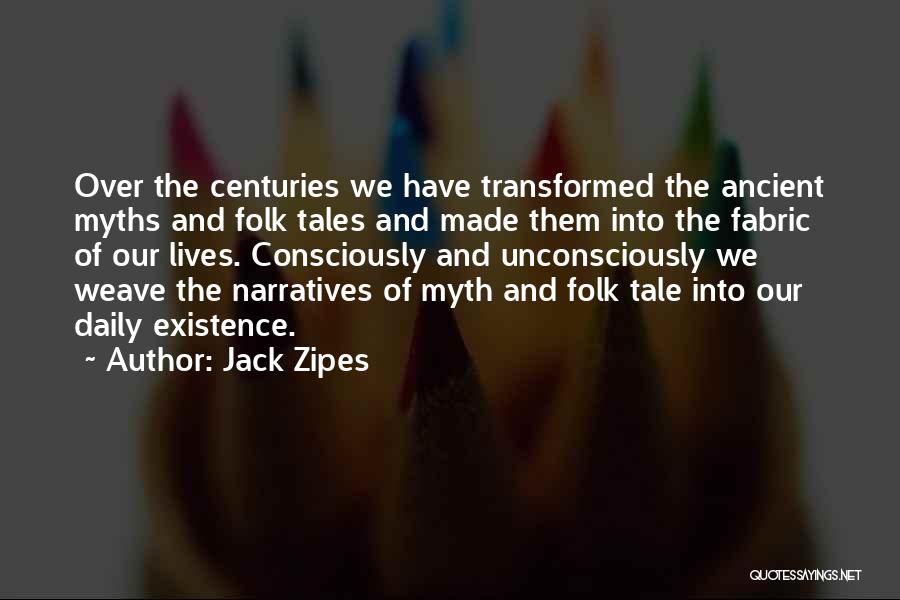
Over the centuries we have transformed the ancient myths and folk tales and made them into the fabric of our lives. Consciously and unconsciously we weave the narratives of myth and folk tale into our daily existence. — Jack Zipes
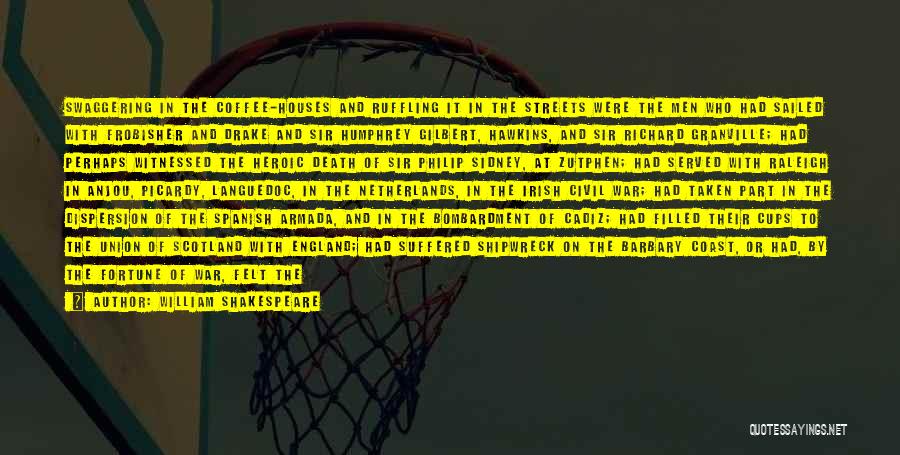
Swaggering in the coffee-houses and ruffling it in the streets were the men who had sailed with Frobisher and Drake and Sir Humphrey Gilbert, Hawkins, and Sir Richard Granville; had perhaps witnessed the heroic death of Sir Philip Sidney, at Zutphen; had served with Raleigh in Anjou, Picardy, Languedoc, in the Netherlands, in the Irish civil war; had taken part in the dispersion of the Spanish Armada, and in the bombardment of Cadiz; had filled their cups to the union of Scotland with England; had suffered shipwreck on the Barbary Coast, or had, by the fortune of war, felt the grip of the Spanish Inquisition; who could tell tales of the marvels seen in new-found America and the Indies, and, perhaps, like Captain John Smith, could mingle stories of the naive simplicity of the natives beyond the Atlantic, with charming narratives of the wars in Hungary, the beauties of the seraglio of the Grand Turk, and the barbaric pomp of the Khan of Tartary. — William Shakespeare
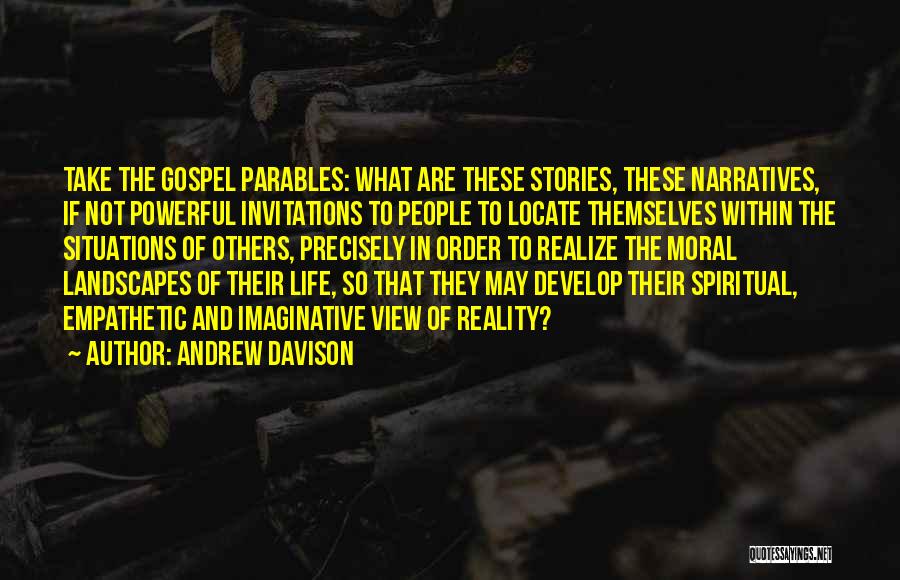
Take the Gospel parables: what are these stories, these narratives, if not powerful invitations to people to locate themselves within the situations of others, precisely in order to realize the moral landscapes of their life, so that they may develop their spiritual, empathetic and imaginative view of reality? — Andrew Davison
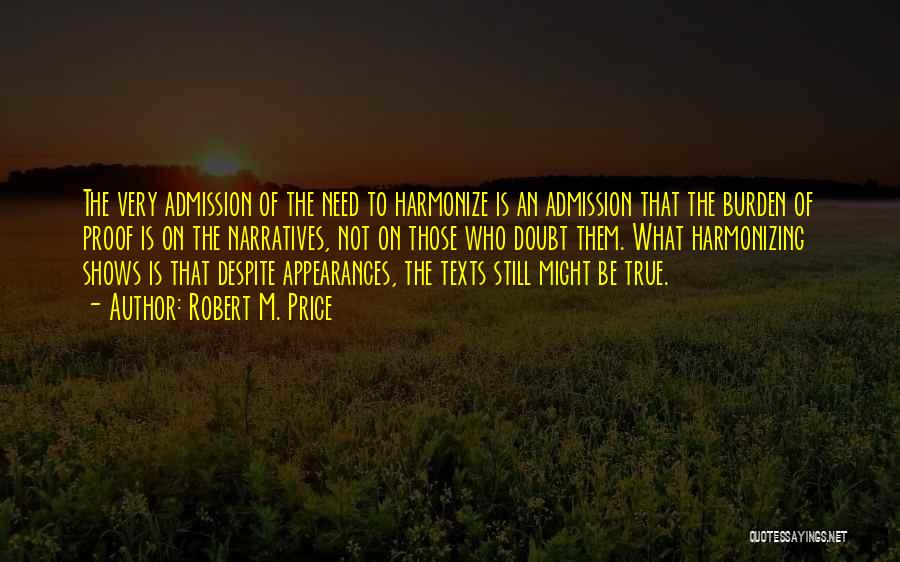
The very admission of the need to harmonize is an admission that the burden of proof is on the narratives, not on those who doubt them. What harmonizing shows is that despite appearances, the texts still might be true. — Robert M. Price
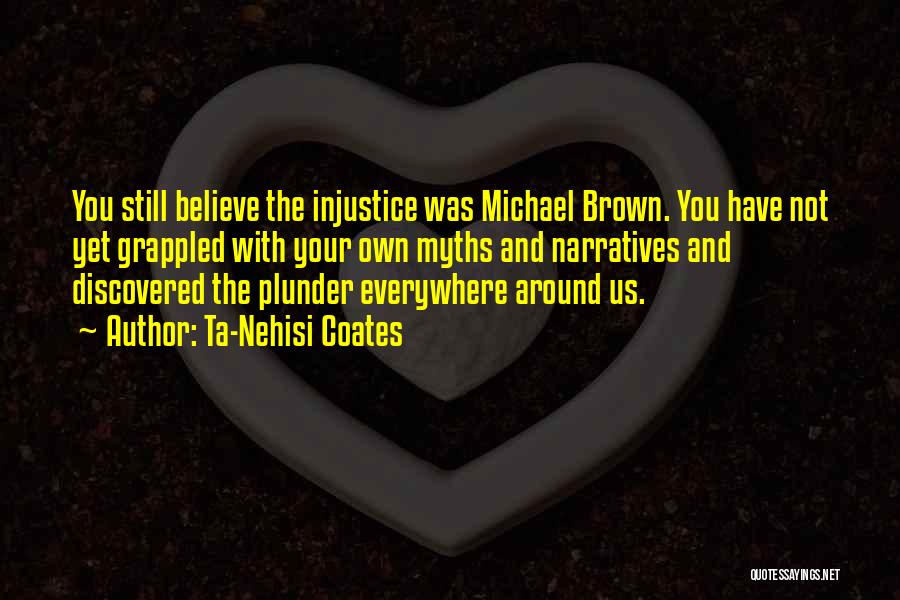
You still believe the injustice was Michael Brown. You have not yet grappled with your own myths and narratives and discovered the plunder everywhere around us. — Ta-Nehisi Coates
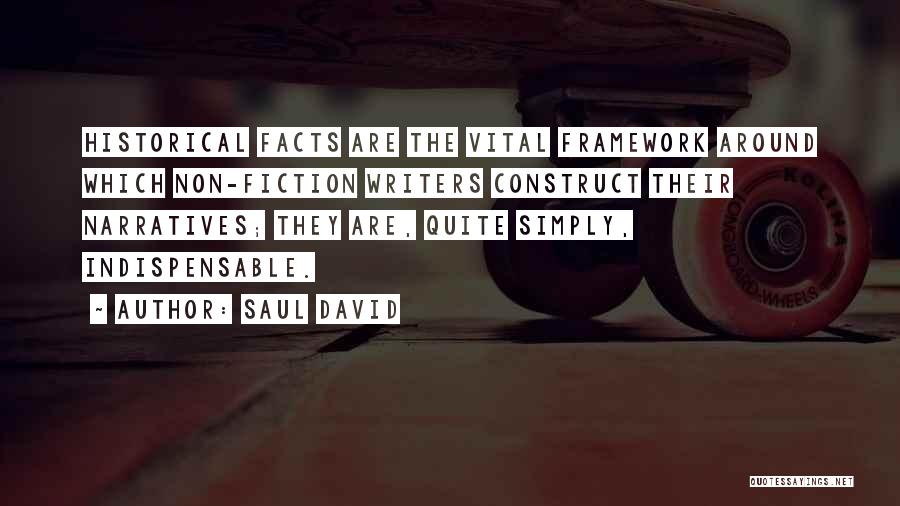
Historical facts are the vital framework around which non-fiction writers construct their narratives; they are, quite simply, indispensable. — Saul David
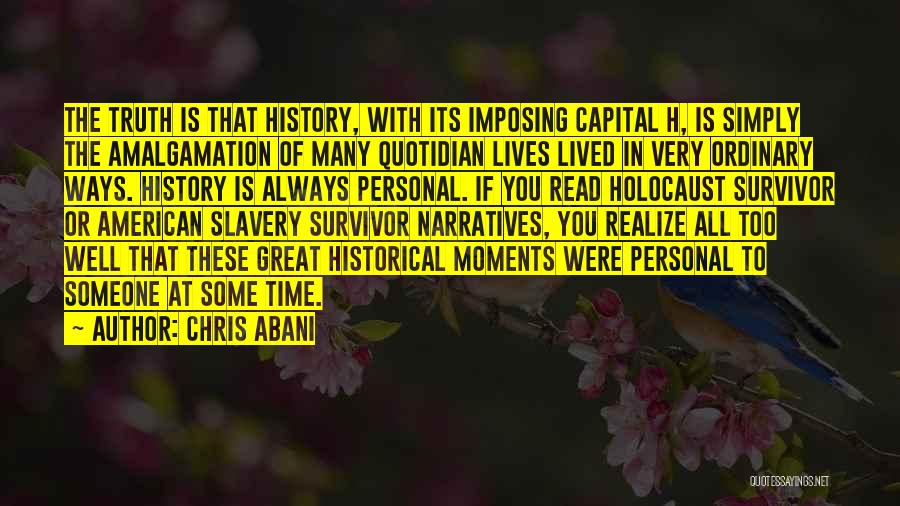
The truth is that History, with its imposing capital H, is simply the amalgamation of many quotidian lives lived in very ordinary ways. History is always personal. If you read Holocaust survivor or American slavery survivor narratives, you realize all too well that these great Historical moments were personal to someone at some time. — Chris Abani
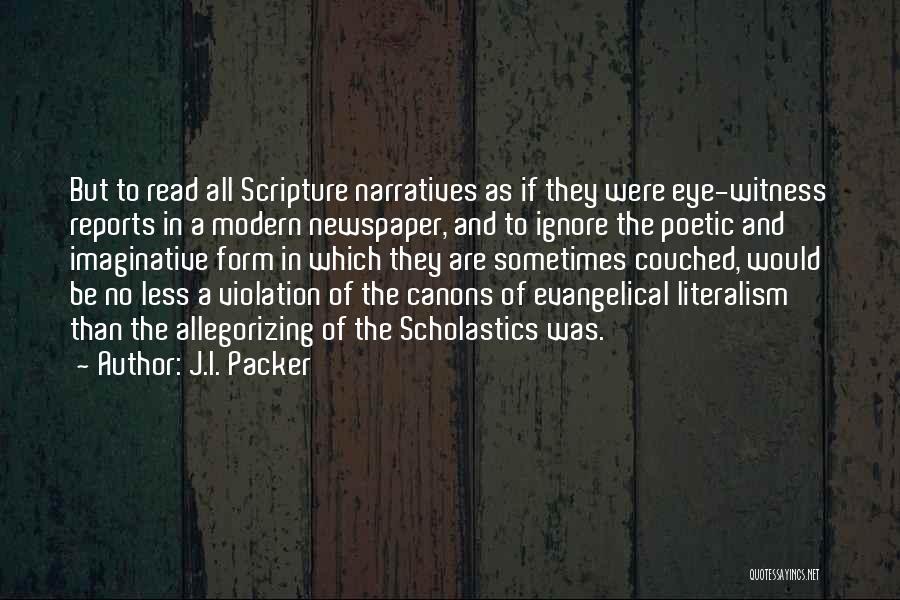
But to read all Scripture narratives as if they were eye-witness reports in a modern newspaper, and to ignore the poetic and imaginative form in which they are sometimes couched, would be no less a violation of the canons of evangelical literalism than the allegorizing of the Scholastics was. — J.I. Packer
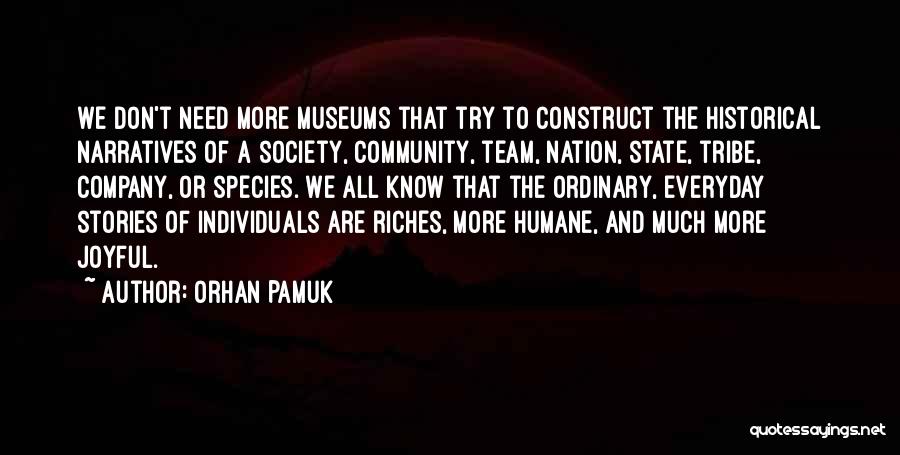
We don't need more museums that try to construct the historical narratives of a society, community, team, nation, state, tribe, company, or species. We all know that the ordinary, everyday stories of individuals are riches, more humane, and much more joyful. — Orhan Pamuk
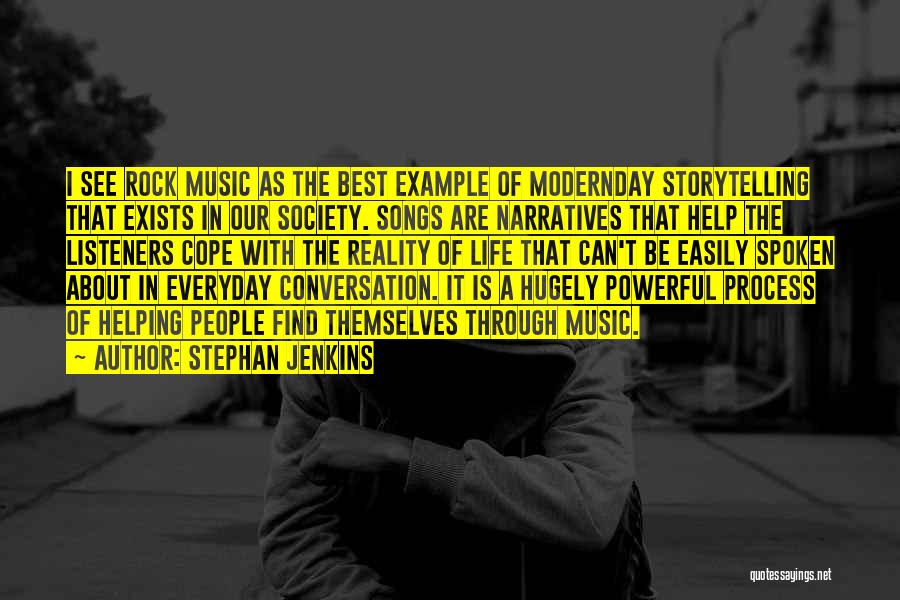
I see rock music as the best example of modernday storytelling that exists in our society. Songs are narratives that help the listeners cope with the reality of life that can't be easily spoken about in everyday conversation. It is a hugely powerful process of helping people find themselves through music. — Stephan Jenkins
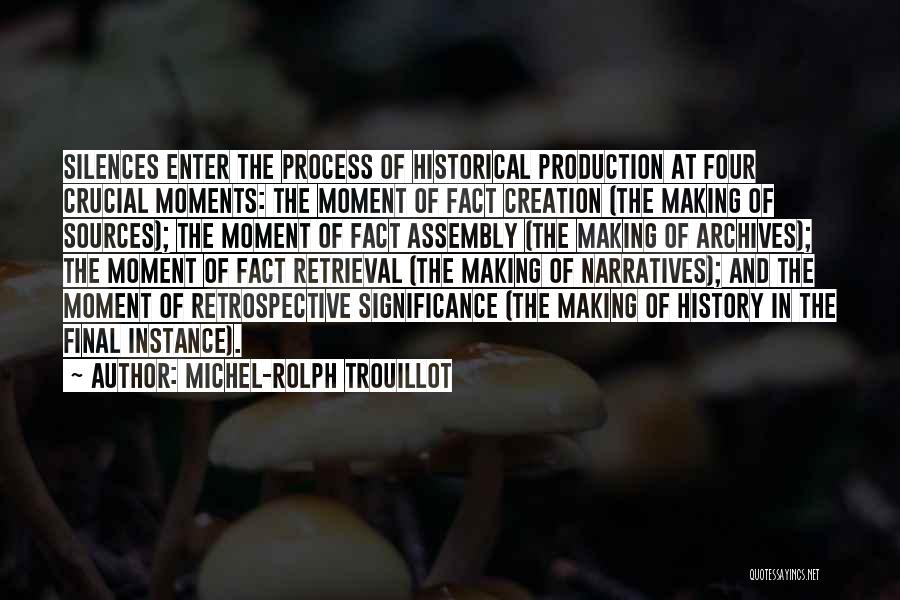
Silences enter the process of historical production at four crucial moments: the moment of fact creation (the making of sources); the moment of fact assembly (the making of archives); the moment of fact retrieval (the making of narratives); and the moment of retrospective significance (the making of history in the final instance). — Michel-Rolph Trouillot
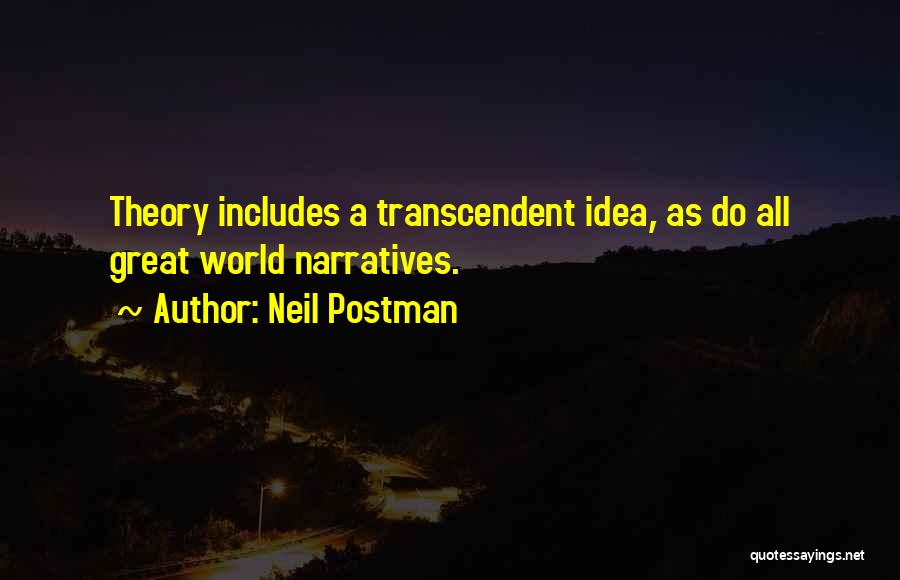
Theory includes a transcendent idea, as do all great world narratives. — Neil Postman
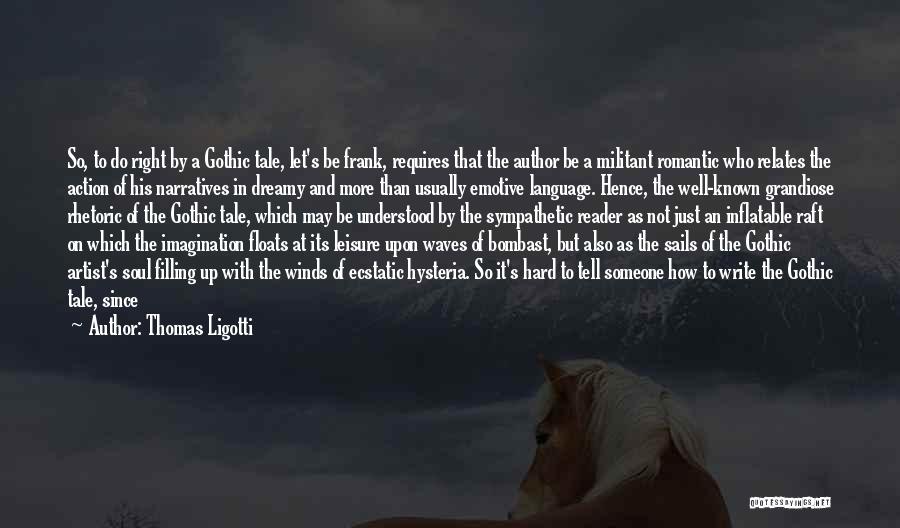
So, to do right by a Gothic tale, let's be frank, requires that the author be a militant romantic who relates the action of his narratives in dreamy and more than usually emotive language. Hence, the well-known grandiose rhetoric of the Gothic tale, which may be understood by the sympathetic reader as not just an inflatable raft on which the imagination floats at its leisure upon waves of bombast, but also as the sails of the Gothic artist's soul filling up with the winds of ecstatic hysteria. So it's hard to tell someone how to write the Gothic tale, since one really has to be born to the task. Too bad. — Thomas Ligotti
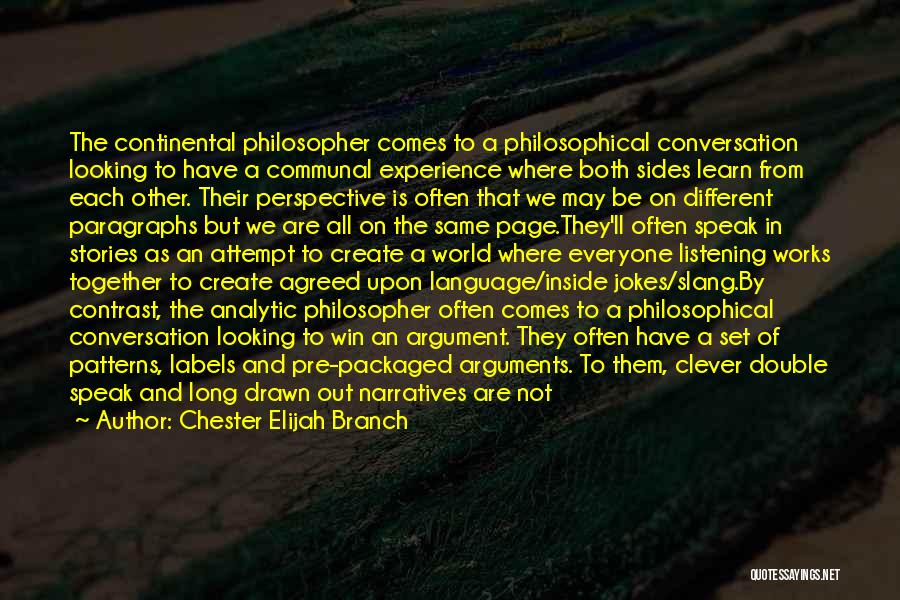
The continental philosopher comes to a philosophical conversation looking to have a communal experience where both sides learn from each other. Their perspective is often that we may be on different paragraphs but we are all on the same page.
They'll often speak in stories as an attempt to create a world where everyone listening works together to create agreed upon language/inside jokes/slang.
By contrast, the analytic philosopher often comes to a philosophical conversation looking to win an argument. They often have a set of patterns, labels and pre-packaged arguments. To them, clever double speak and long drawn out narratives are not profound. They'll often label it halfway through as just a bunch of made up gibberish that leaves things even more confusing than before.
It is as if the analytic philosopher says to the continental philosopher 'you are speaking gibberish' and the continental philosopher responds with 'exactly. — Chester Elijah Branch
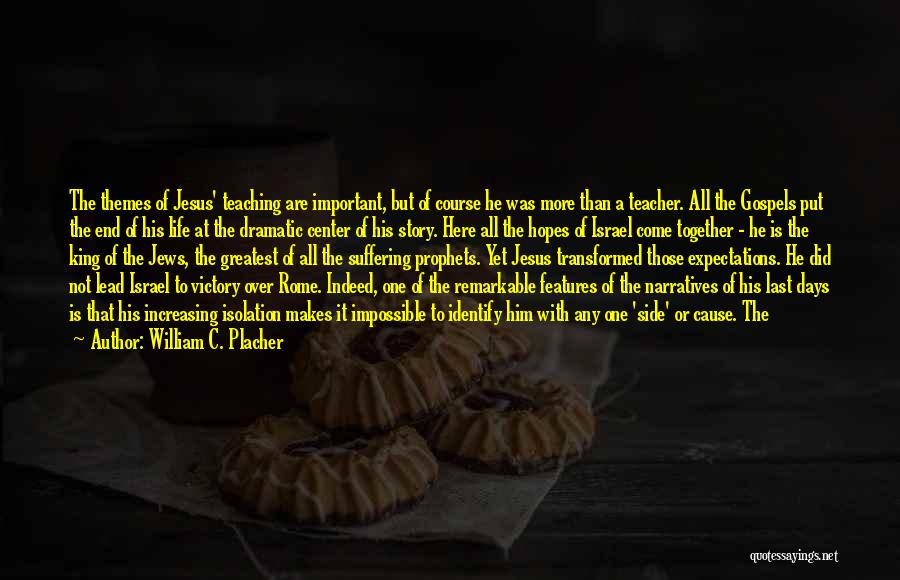
The themes of Jesus' teaching are important, but of course he was more than a teacher. All the Gospels put the end of his life at the dramatic center of his story. Here all the hopes of Israel come together - he is the king of the Jews, the greatest of all the suffering prophets. Yet Jesus transformed those expectations. He did not lead Israel to victory over Rome. Indeed, one of the remarkable features of the narratives of his last days is that his increasing isolation makes it impossible to identify him with any one 'side' or cause. The Roman governor sentenced him as a Jewish rebel, but the leaders of Judaism also turned against him. He attacked the powerful on behalf of the poor, but in the end the mob too called for his blood. His own disciples ran away; Peter denied him. He did not go to his death agony as a representative of Jews, or of the poor, or of Christians, but alone, and thus, according to Christian faith, as a representative of all. — William C. Placher
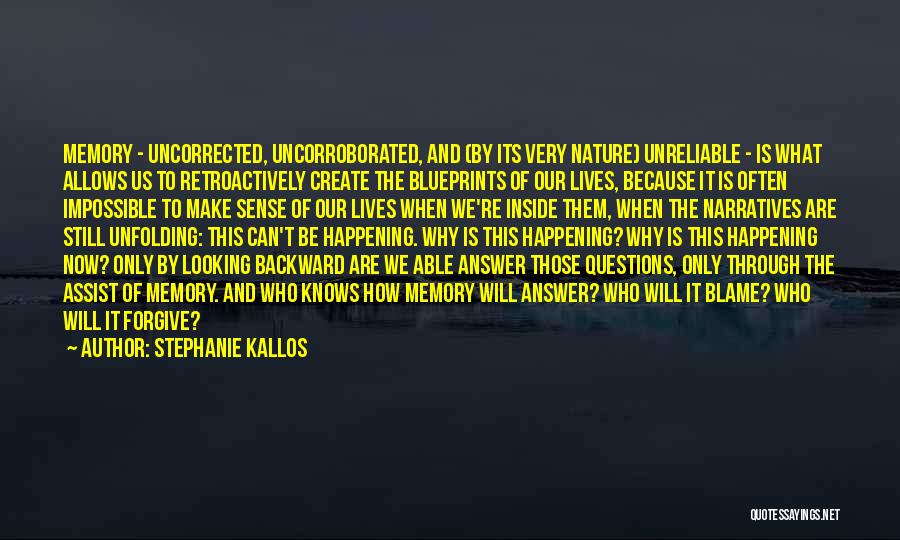
Memory - uncorrected, uncorroborated, and (by its very nature) unreliable - is what allows us to retroactively create the blueprints of our lives, because it is often impossible to make sense of our lives when we're inside them, when the narratives are still unfolding: This can't be happening. Why is this happening? Why is this happening now? Only by looking backward are we able answer those questions, only through the assist of memory. And who knows how memory will answer? Who will it blame? Who will it forgive? — Stephanie Kallos
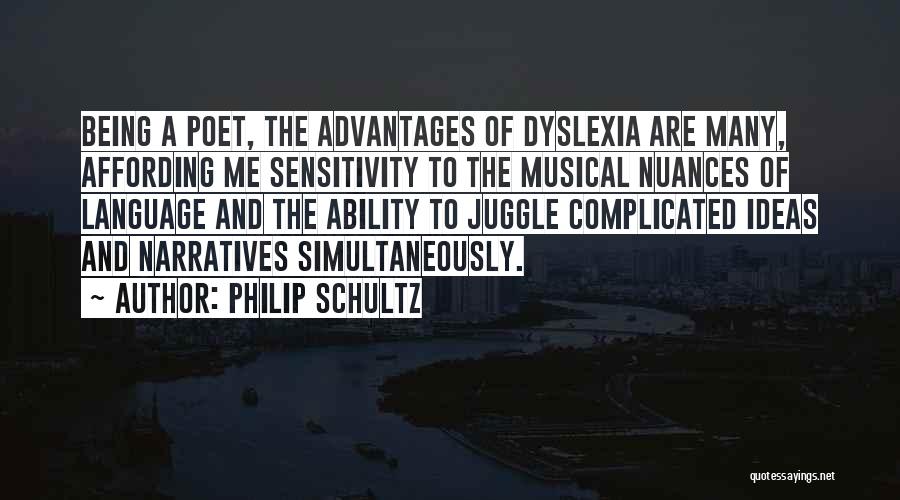
Being a poet, the advantages of dyslexia are many, affording me sensitivity to the musical nuances of language and the ability to juggle complicated ideas and narratives simultaneously. — Philip Schultz
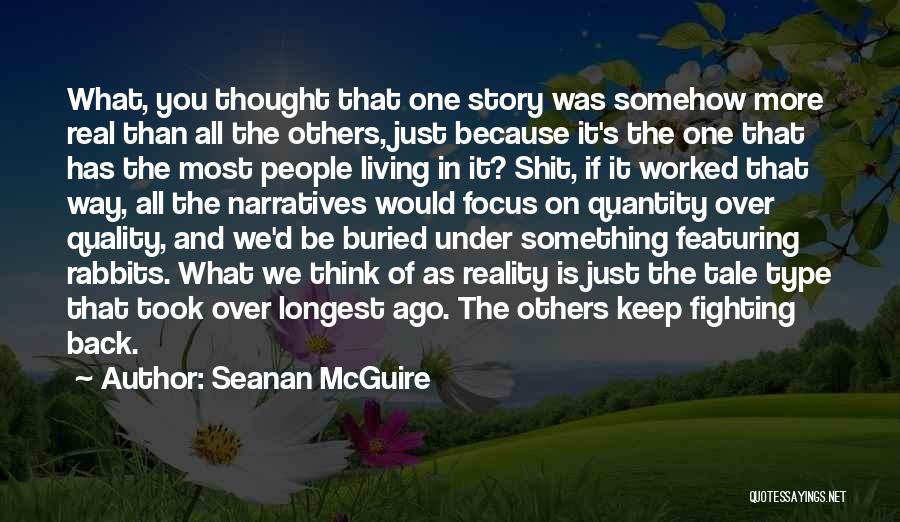
What, you thought that one story was somehow more real than all the others, just because it's the one that has the most people living in it? Shit, if it worked that way, all the narratives would focus on quantity over quality, and we'd be buried under something featuring rabbits. What we think of as reality is just the tale type that took over longest ago. The others keep fighting back. — Seanan McGuire
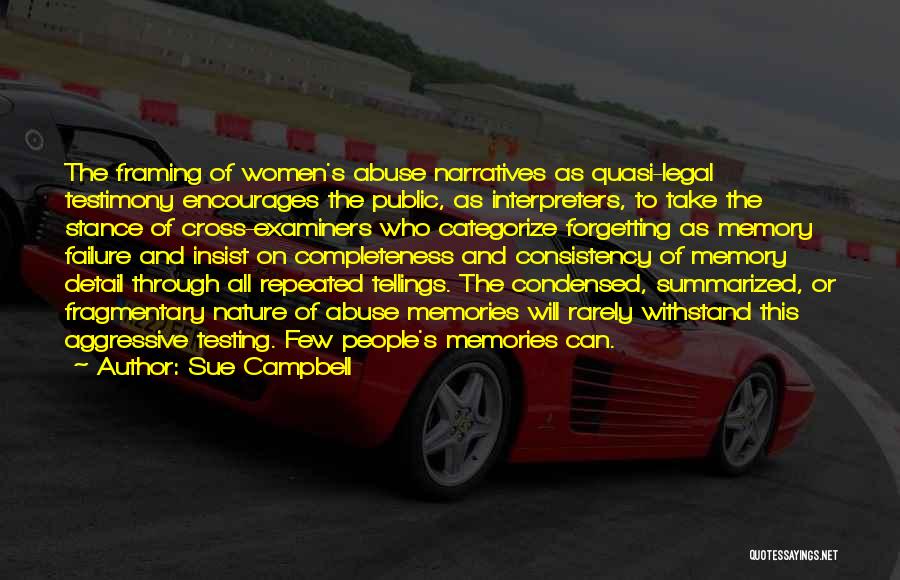
The framing of women's abuse narratives as quasi-legal testimony encourages the public, as interpreters, to take the stance of cross-examiners who categorize forgetting as memory failure and insist on completeness and consistency of memory detail through all repeated tellings. The condensed, summarized, or fragmentary nature of abuse memories will rarely withstand this aggressive testing. Few people's memories can. — Sue Campbell
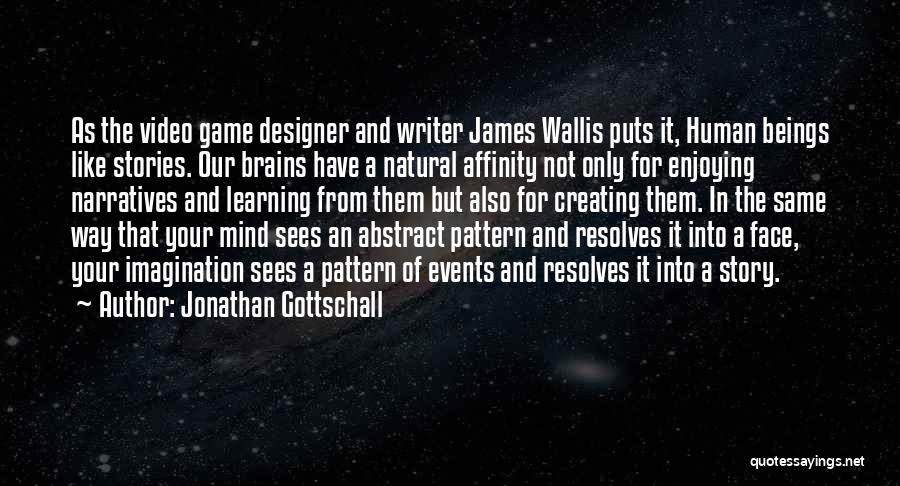
As the video game designer and writer James Wallis puts it, Human beings like stories. Our brains have a natural affinity not only for enjoying narratives and learning from them but also for creating them. In the same way that your mind sees an abstract pattern and resolves it into a face, your imagination sees a pattern of events and resolves it into a story. — Jonathan Gottschall
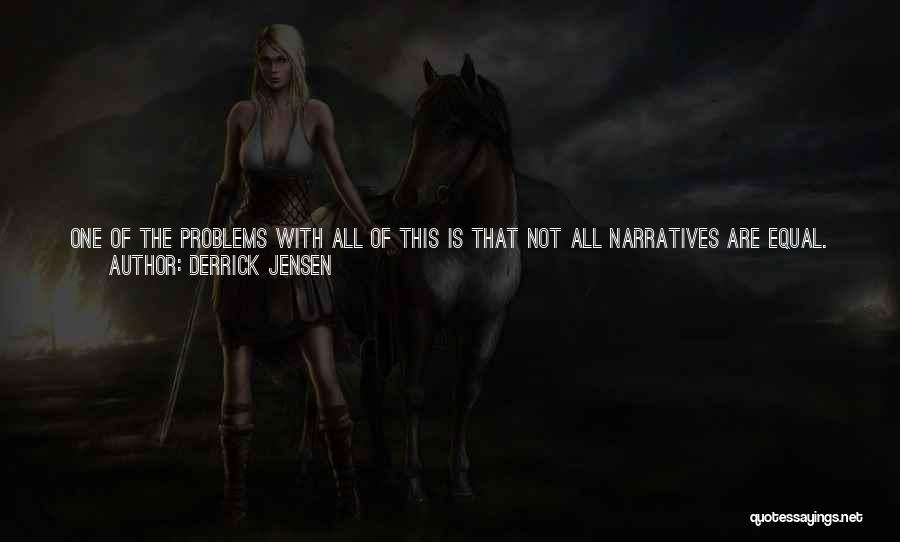
One of the problems with all of this is that not all narratives are equal. Imagine, to take a silly example, that someone told you story after story extolling the virtues of eating dog shit. You've been told these stories since you were a child. You believe them. You eat dog shit hotdogs, dog shit ice cream, General Tso's dog shit. Sooner or later, if you are exposed to some other foods, you might figure out that dog shit really doesn't taste good. Or if you cling too tightly to these stories (or if your enculturation is so strong that dog shit actually does taste good to you), the diet might make you sick or kill you. To make this example a little less silly, substitute the word pesticides for dog shit. Or, for that matter, substitute Big Mac, Whopper, or Coca Cola. — Derrick Jensen
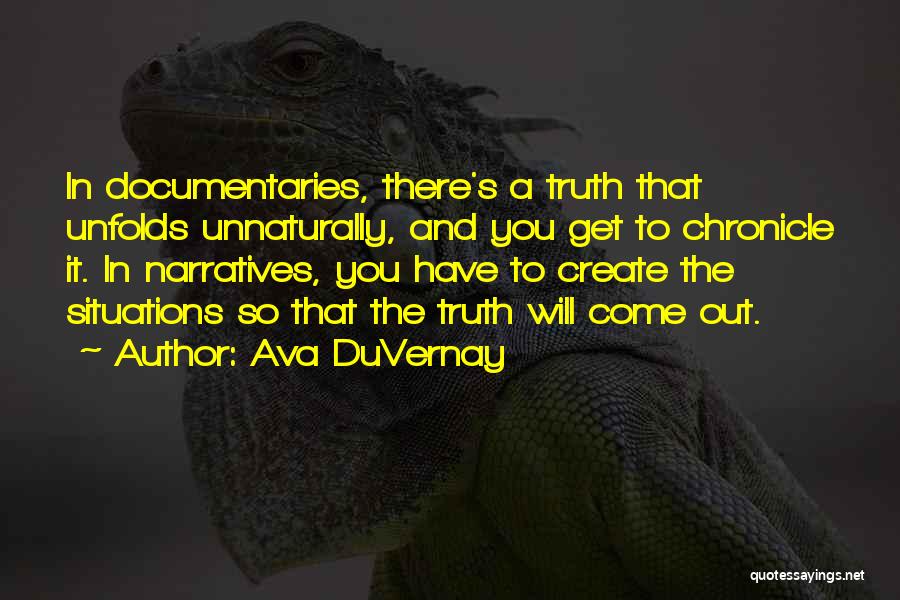
In documentaries, there's a truth that unfolds unnaturally, and you get to chronicle it. In narratives, you have to create the situations so that the truth will come out. — Ava DuVernay

That thing we call a place is the intersection of many changing forces passing through, whirling around, mixing, dissolving, and exploding in a fixed location. To write about a place is to acknowledge that phenomena often treated separately - ecology, democracy, culture, storytelling, urban design, individual life histories and collective endeavors - coexist. They coexist geographically, spatially, in place, and to understand a place is to engage with braided narratives and sue generous explorations. — Rebecca Solnit
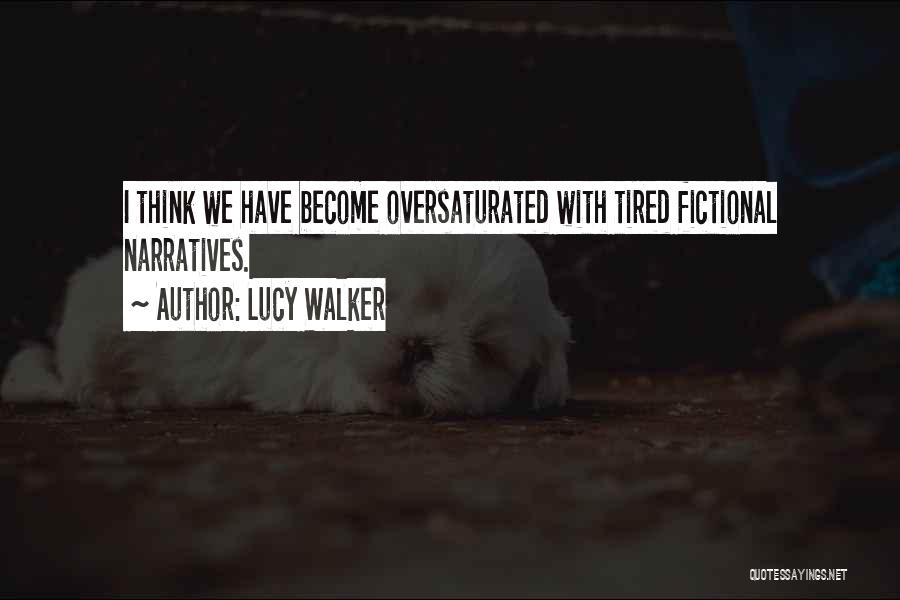
I think we have become oversaturated with tired fictional narratives. — Lucy Walker
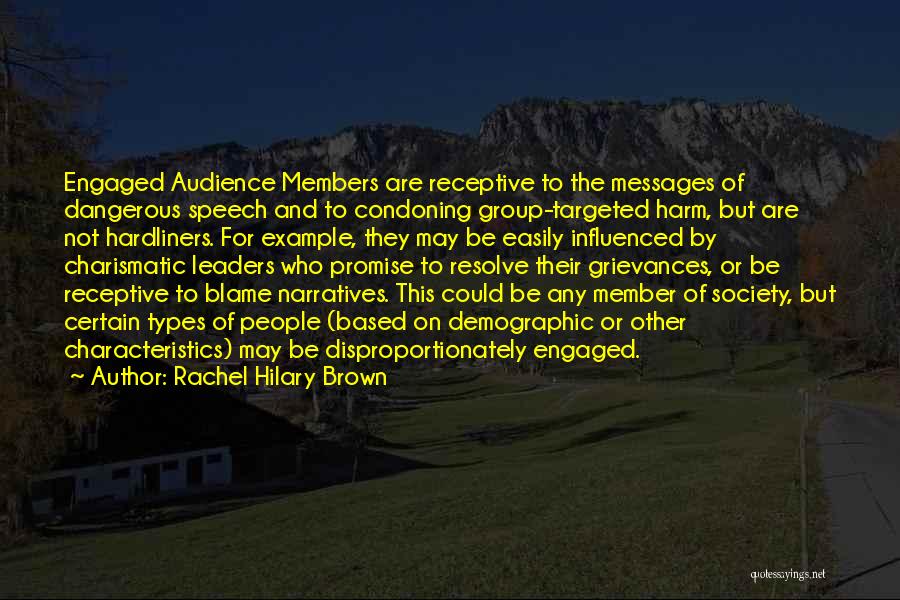
Engaged Audience Members are receptive to the messages of dangerous speech and to condoning group-targeted harm, but are not hardliners. For example, they may be easily influenced by charismatic leaders who promise to resolve their grievances, or be receptive to blame narratives. This could be any member of society, but certain types of people (based on demographic or other characteristics) may be disproportionately engaged. — Rachel Hilary Brown
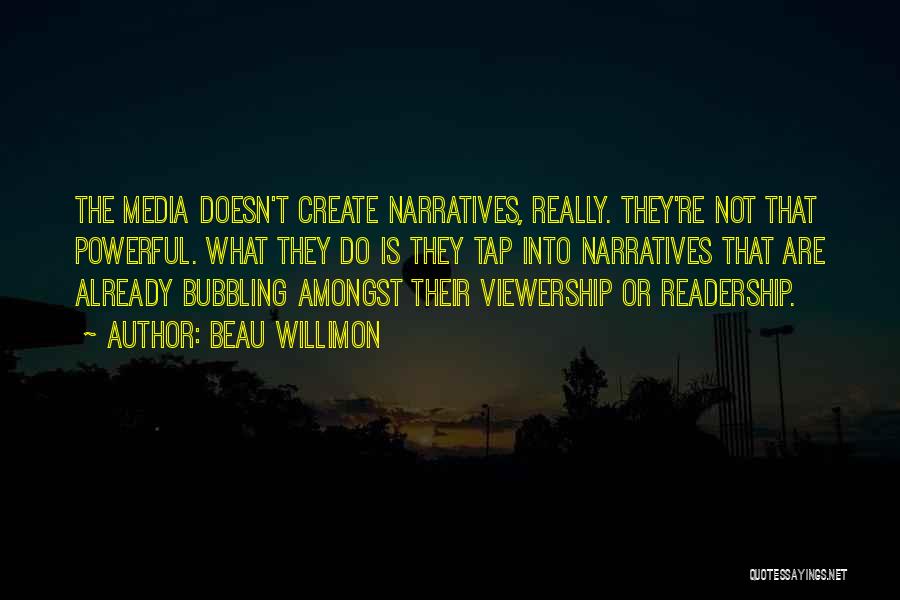
The media doesn't create narratives, really. They're not that powerful. What they do is they tap into narratives that are already bubbling amongst their viewership or readership. — Beau Willimon
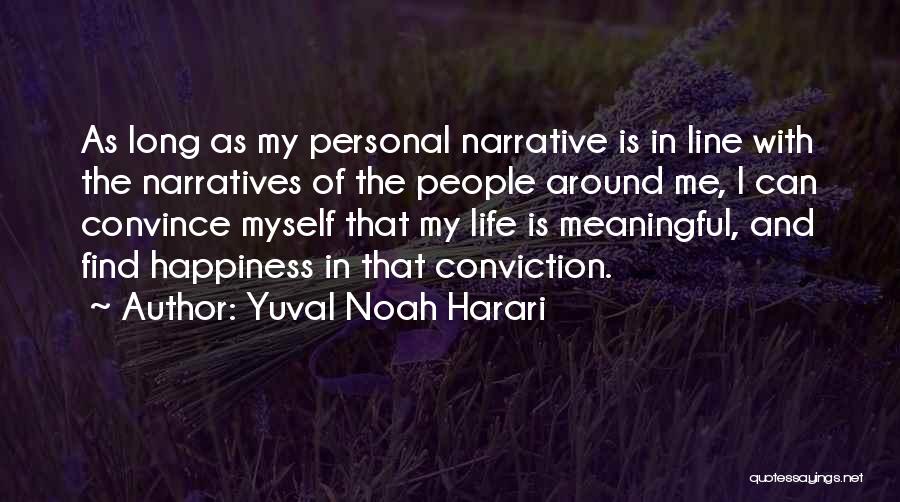
As long as my personal narrative is in line with the narratives of the people around me, I can convince myself that my life is meaningful, and find happiness in that conviction. — Yuval Noah Harari
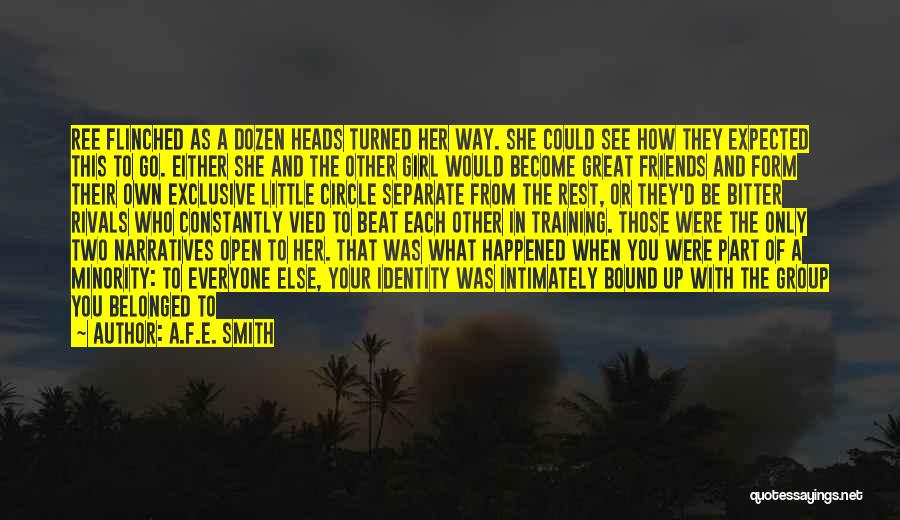
Ree flinched as a dozen heads turned her way. She could see how they expected this to go. Either she and the other girl would become great friends and form their own exclusive little circle separate from the rest, or they'd be bitter rivals who constantly vied to beat each other in training. Those were the only two narratives open to her. That was what happened when you were part of a minority: to everyone else, your identity was intimately bound up with the group you belonged to — A.F.E. Smith
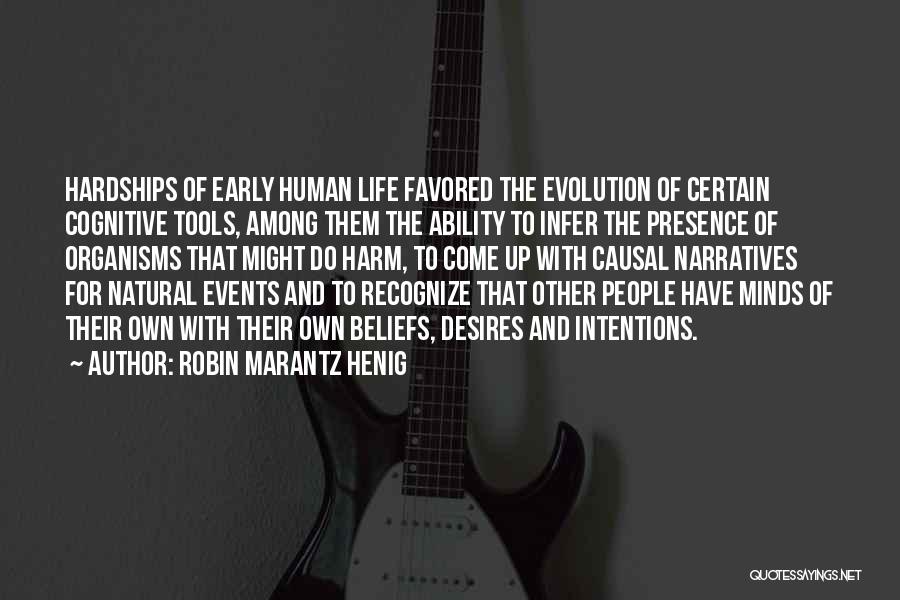
Hardships of early human life favored the evolution of certain cognitive tools, among them the ability to infer the presence of organisms that might do harm, to come up with causal narratives for natural events and to recognize that other people have minds of their own with their own beliefs, desires and intentions. — Robin Marantz Henig
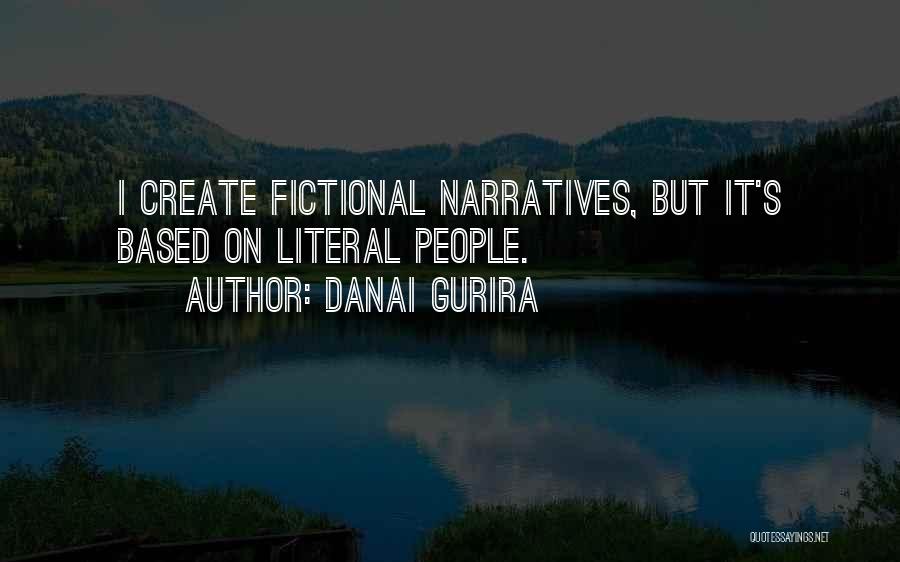
I create fictional narratives, but it's based on literal people. — Danai Gurira
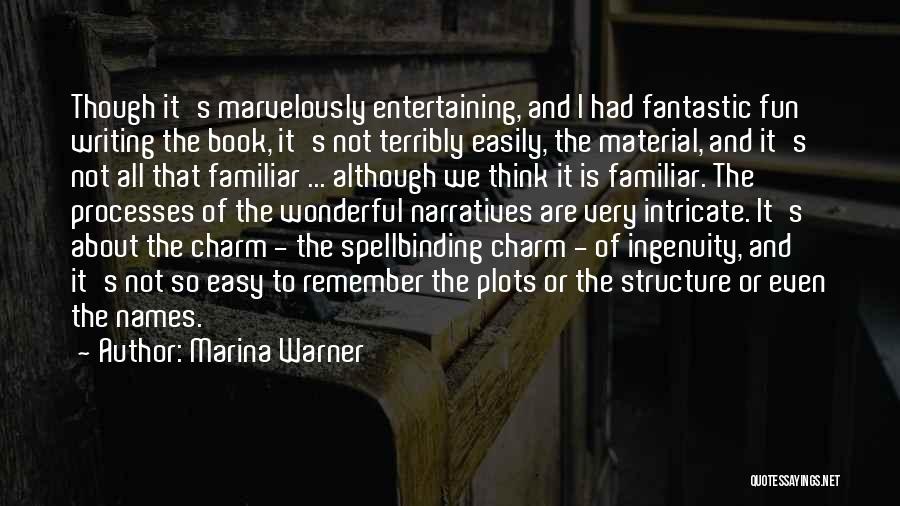
Though it's marvelously entertaining, and I had fantastic fun writing the book, it's not terribly easily, the material, and it's not all that familiar ... although we think it is familiar. The processes of the wonderful narratives are very intricate. It's about the charm - the spellbinding charm - of ingenuity, and it's not so easy to remember the plots or the structure or even the names. — Marina Warner
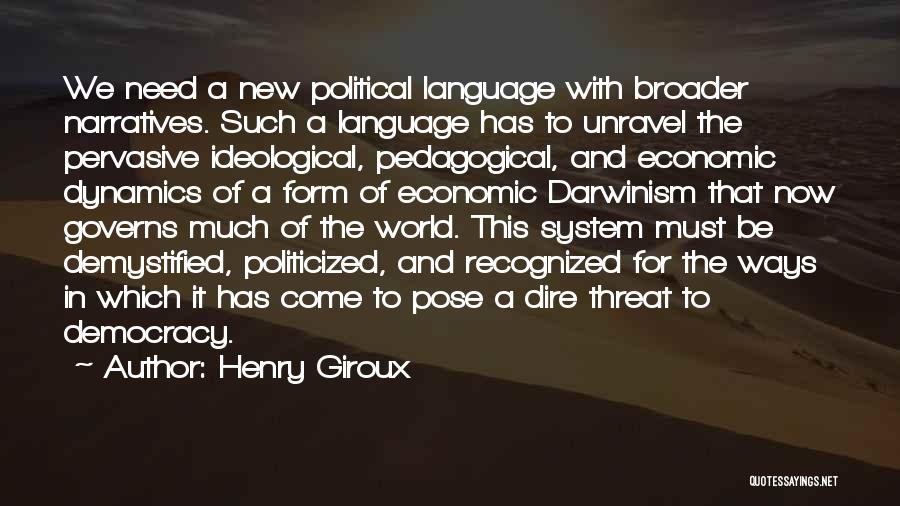
We need a new political language with broader narratives. Such a language has to unravel the pervasive ideological, pedagogical, and economic dynamics of a form of economic Darwinism that now governs much of the world. This system must be demystified, politicized, and recognized for the ways in which it has come to pose a dire threat to democracy. — Henry Giroux
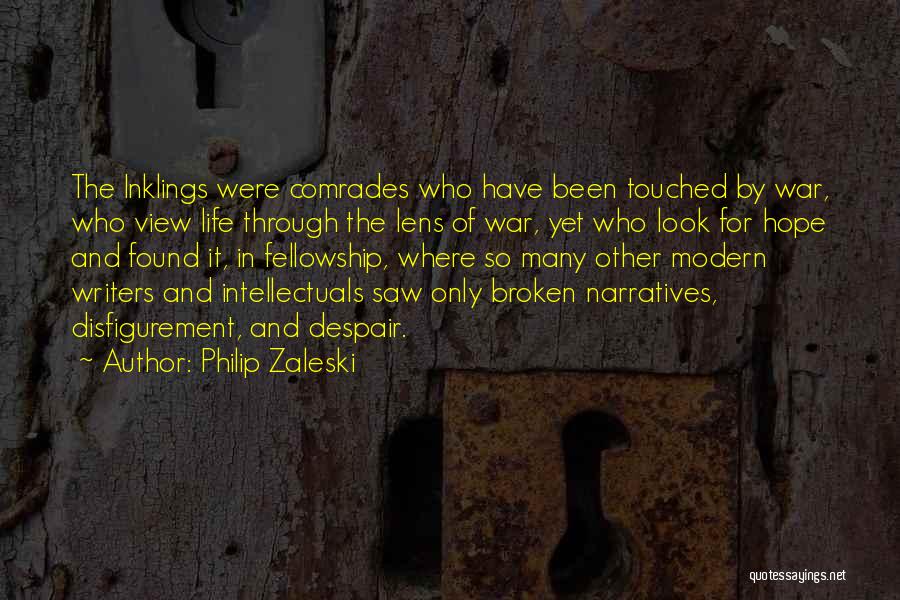
The Inklings were comrades who have been touched by war, who view life through the lens of war, yet who look for hope and found it, in fellowship, where so many other modern writers and intellectuals saw only broken narratives, disfigurement, and despair. — Philip Zaleski
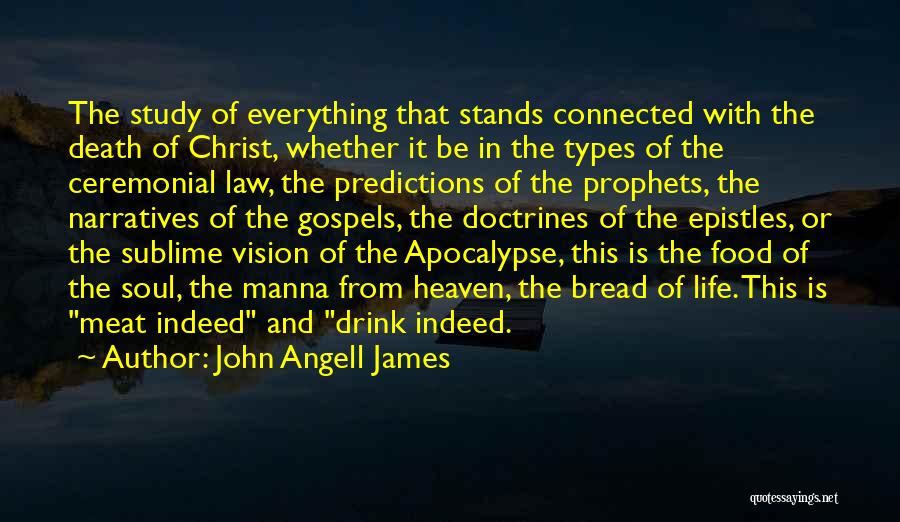
The study of everything that stands connected with the death of Christ, whether it be in the types of the ceremonial law, the predictions of the prophets, the narratives of the gospels, the doctrines of the epistles, or the sublime vision of the Apocalypse, this is the food of the soul, the manna from heaven, the bread of life. This is "meat indeed" and "drink indeed. — John Angell James
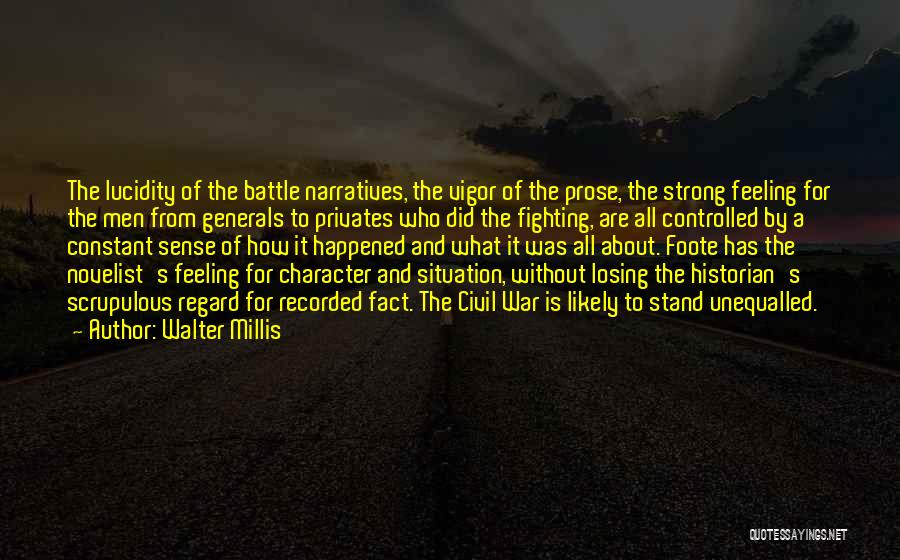
The lucidity of the battle narratives, the vigor of the prose, the strong feeling for the men from generals to privates who did the fighting, are all controlled by a constant sense of how it happened and what it was all about. Foote has the novelist's feeling for character and situation, without losing the historian's scrupulous regard for recorded fact. The Civil War is likely to stand unequalled. — Walter Millis
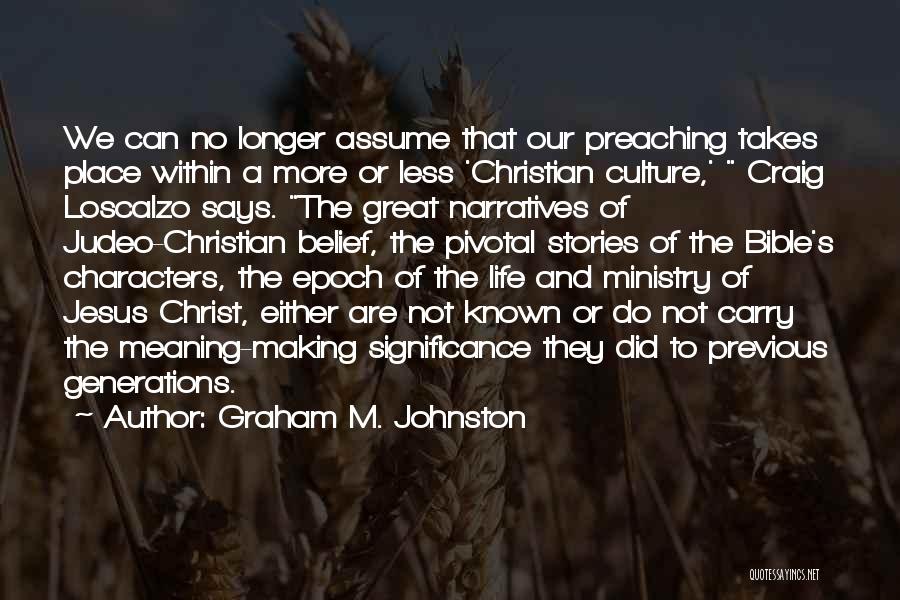
We can no longer assume that our preaching takes place within a more or less 'Christian culture,' " Craig Loscalzo says. "The great narratives of Judeo-Christian belief, the pivotal stories of the Bible's characters, the epoch of the life and ministry of Jesus Christ, either are not known or do not carry the meaning-making significance they did to previous generations. — Graham M. Johnston
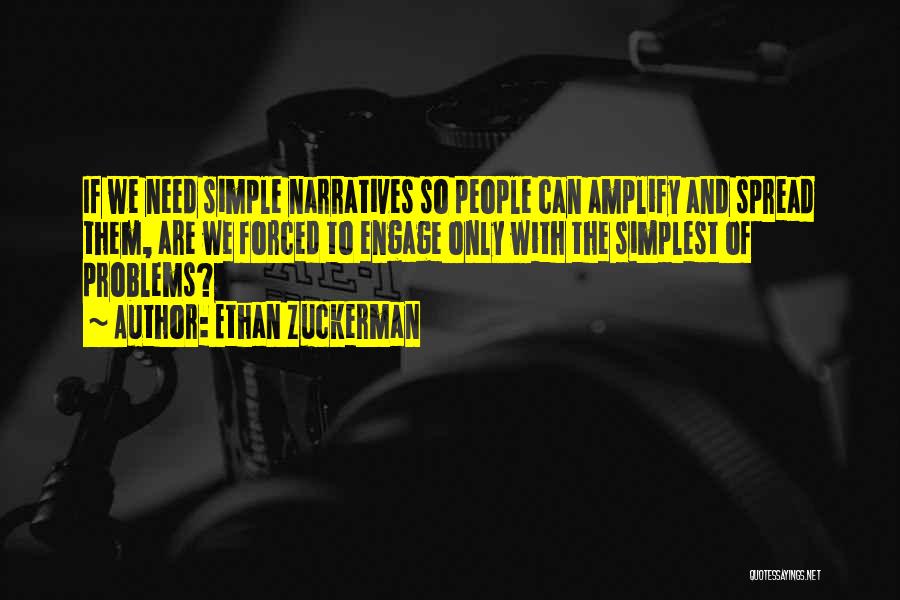
If we need simple narratives so people can amplify and spread them, are we forced to engage only with the simplest of problems? — Ethan Zuckerman
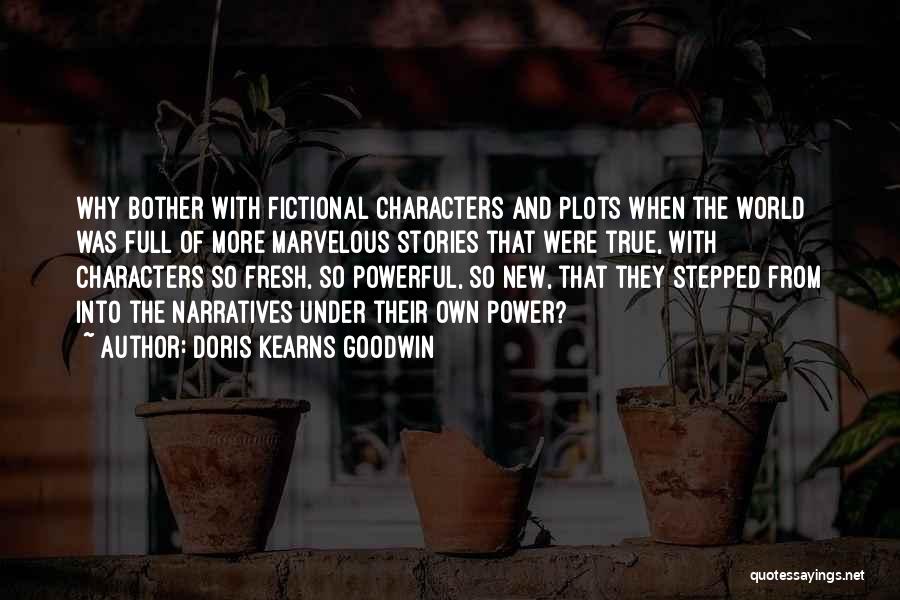
Why bother with fictional characters and plots when the world was full of more marvelous stories that were true, with characters so fresh, so powerful, so new, that they stepped from into the narratives under their own power? — Doris Kearns Goodwin
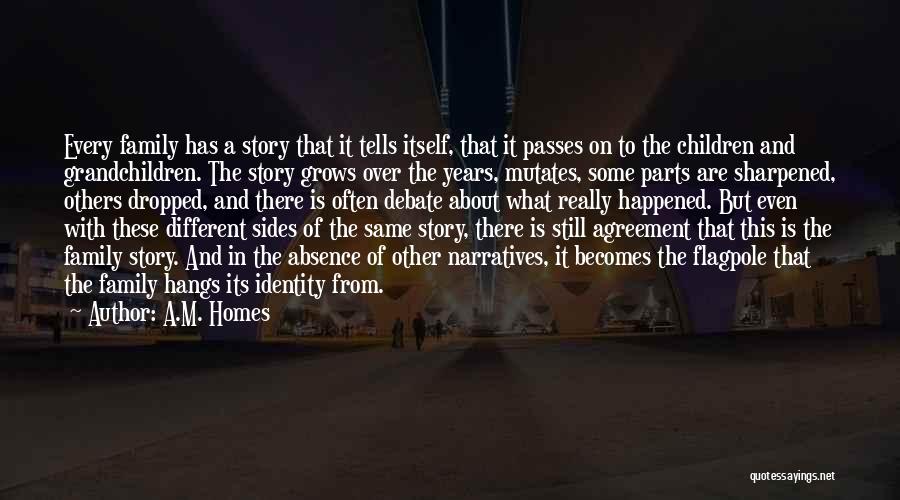
Every family has a story that it tells itself, that it passes on to the children and grandchildren. The story grows over the years, mutates, some parts are sharpened, others dropped, and there is often debate about what really happened. But even with these different sides of the same story, there is still agreement that this is the family story. And in the absence of other narratives, it becomes the flagpole that the family hangs its identity from. — A.M. Homes
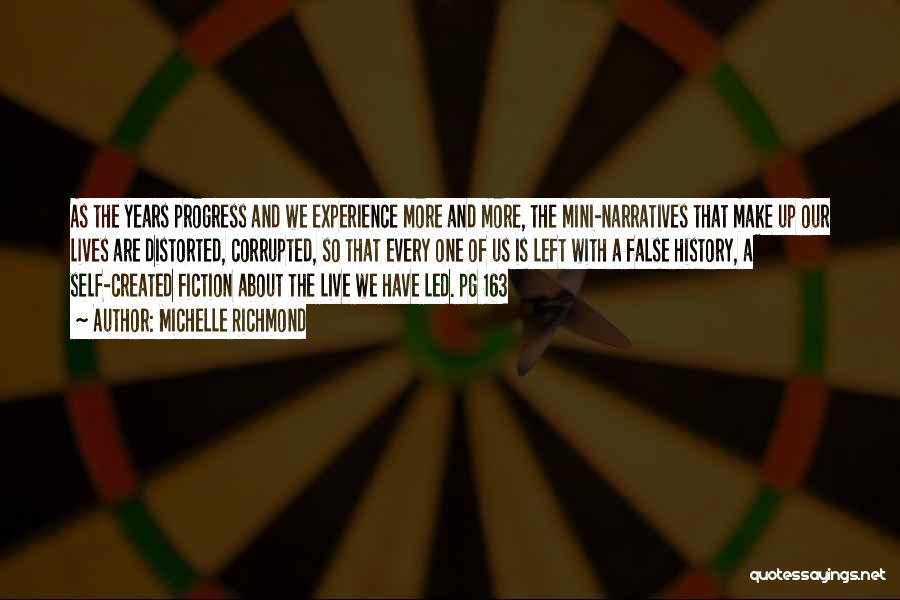
As the years progress and we experience more and more, the mini-narratives that make up our lives are distorted, corrupted, so that every one of us is left with a false history, a self-created fiction about the live we have led. pg 163 — Michelle Richmond
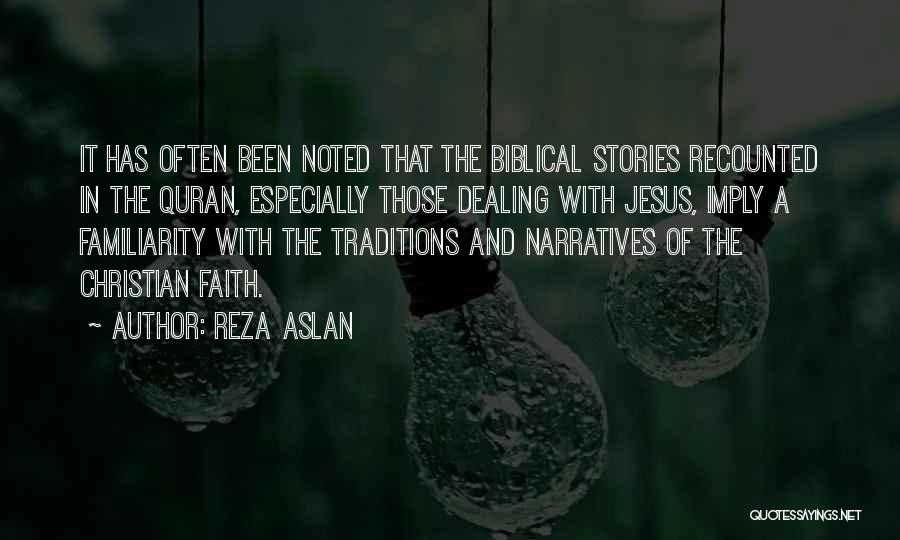
It has often been noted that the biblical stories recounted in the Quran, especially those dealing with Jesus, imply a familiarity with the traditions and narratives of the Christian faith. — Reza Aslan
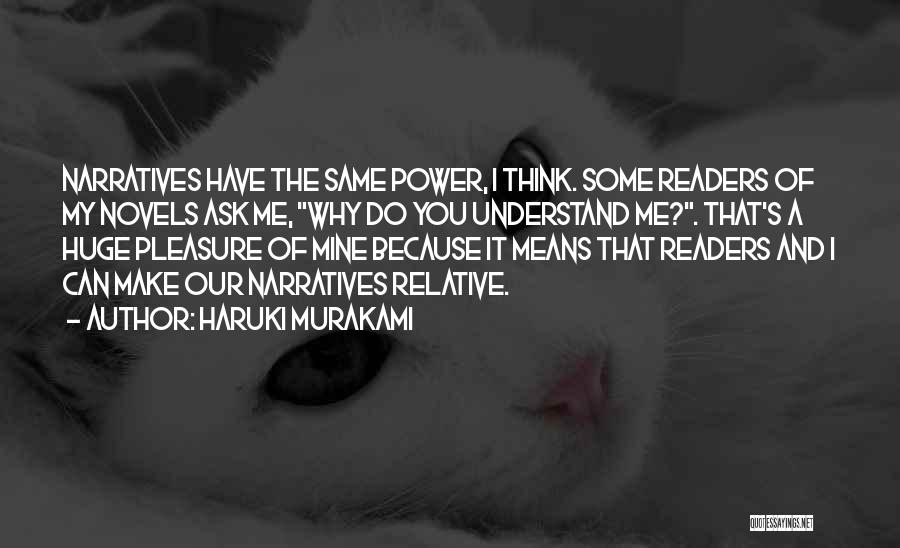
Narratives have the same power, I think. Some readers of my novels ask me, "Why do you understand me?". That's a huge pleasure of mine because it means that readers and I can make our narratives relative. — Haruki Murakami
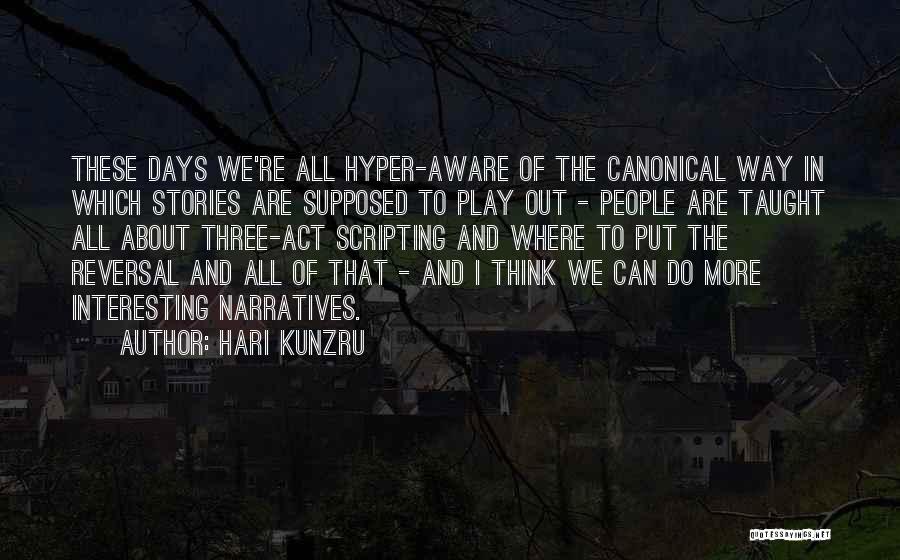
These days we're all hyper-aware of the canonical way in which stories are supposed to play out - people are taught all about three-act scripting and where to put the reversal and all of that - and I think we can do more interesting narratives. — Hari Kunzru
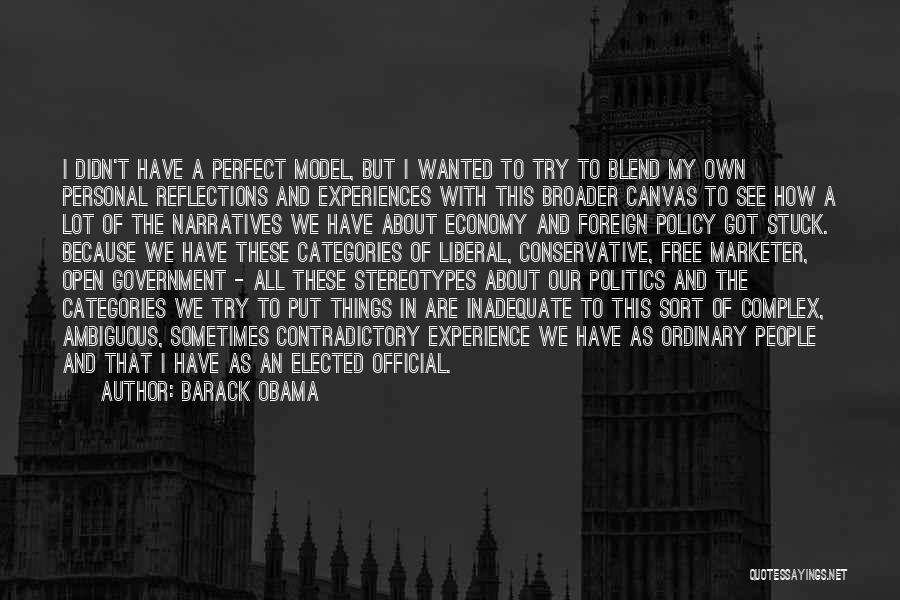
I didn't have a perfect model, but I wanted to try to blend my own personal reflections and experiences with this broader canvas to see how a lot of the narratives we have about economy and foreign policy got stuck. Because we have these categories of liberal, conservative, free marketer, open government - all these stereotypes about our politics and the categories we try to put things in are inadequate to this sort of complex, ambiguous, sometimes contradictory experience we have as ordinary people and that I have as an elected official. — Barack Obama
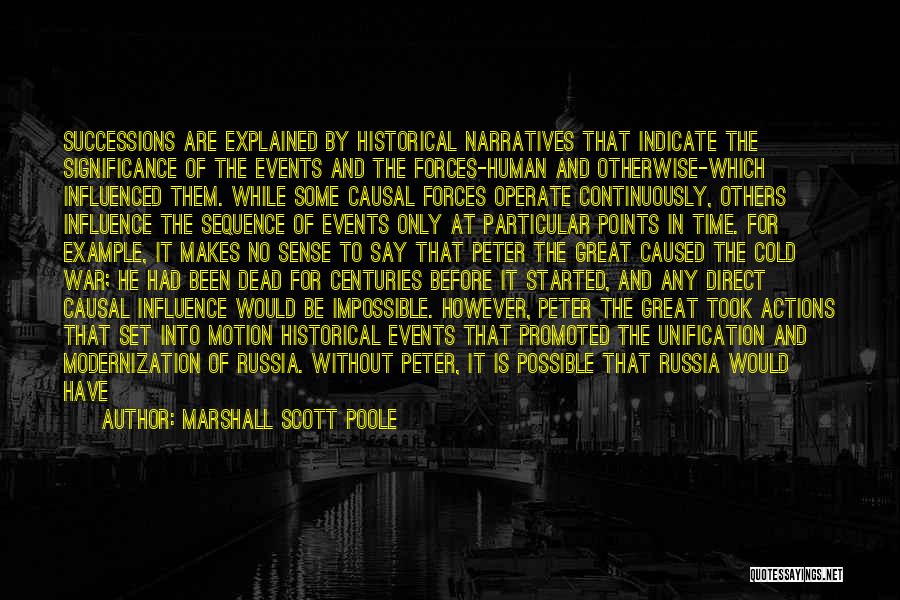
Successions are explained by historical narratives that indicate the significance of the events and the forces-human and otherwise-which influenced them. While some causal forces operate continuously, others influence the sequence of events only at particular points in time. For example, it makes no sense to say that Peter the Great caused the cold war; he had been dead for centuries before it started, and any direct causal influence would be impossible. However, Peter the Great took actions that set into motion historical events that promoted the unification and modernization of Russia. Without Peter, it is possible that Russia would have developed differently and that the cold war would not have occurred. Peter's actions exerted an influence in this case, but it is not the type of direct, continuous causal influence that most variable-based social science theories rely on. — Marshall Scott Poole
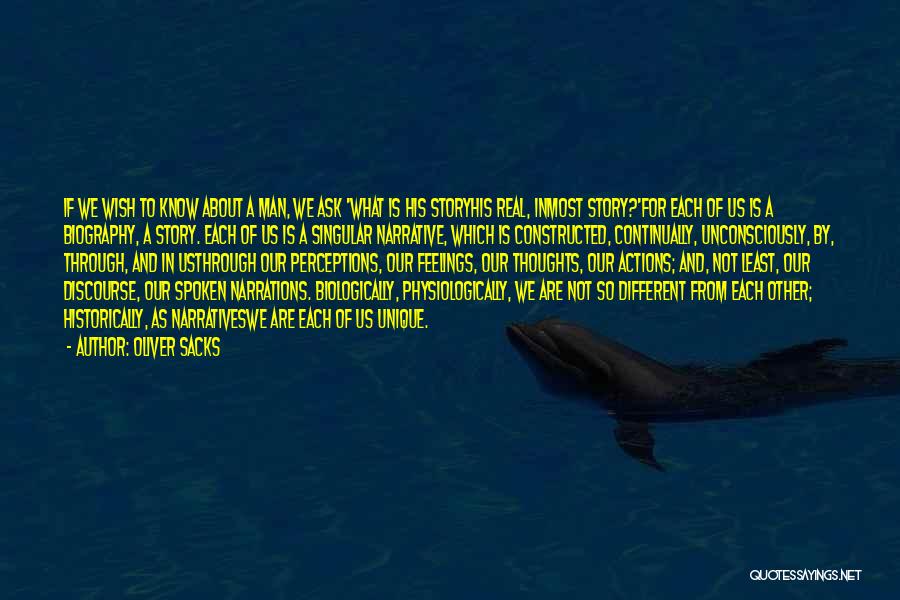
If we wish to know about a man, we ask 'what is his story
his real, inmost story?'
for each of us is a biography, a story. Each of us is a singular narrative, which is constructed, continually, unconsciously, by, through, and in us
through our perceptions, our feelings, our thoughts, our actions; and, not least, our discourse, our spoken narrations. Biologically, physiologically, we are not so different from each other; historically, as narratives
we are each of us unique. — Oliver Sacks
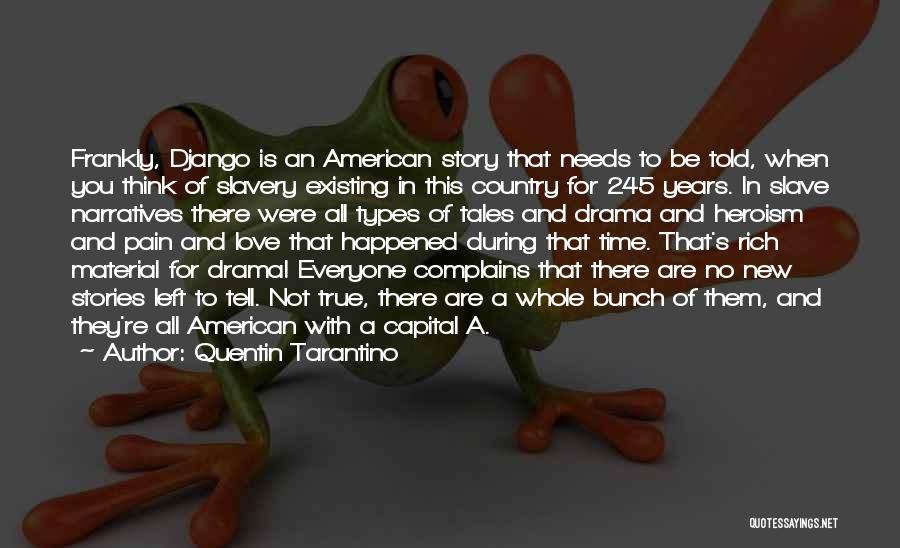
Frankly, Django is an American story that needs to be told, when you think of slavery existing in this country for 245 years. In slave narratives there were all types of tales and drama and heroism and pain and love that happened during that time. That's rich material for drama! Everyone complains that there are no new stories left to tell. Not true, there are a whole bunch of them, and they're all American with a capital A. — Quentin Tarantino
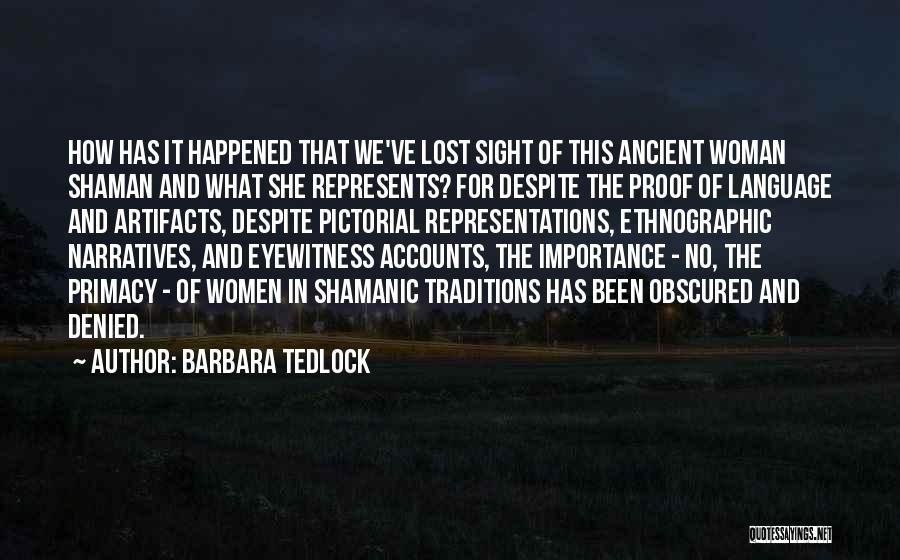
How has it happened that we've lost sight of this ancient woman shaman and what she represents? For despite the proof of language and artifacts, despite pictorial representations, ethnographic narratives, and eyewitness accounts, the importance - no, the primacy - of women in shamanic traditions has been obscured and denied. — Barbara Tedlock
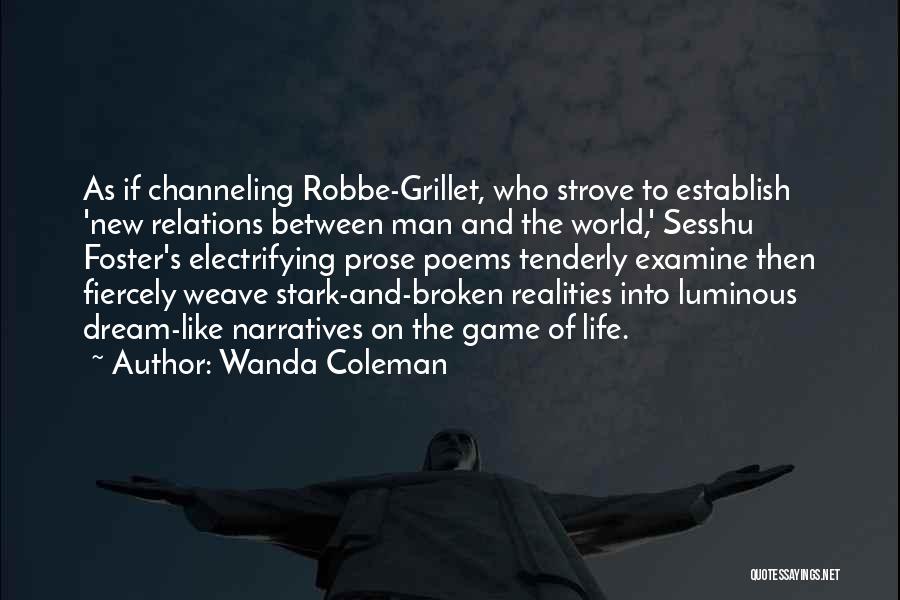
As if channeling Robbe-Grillet, who strove to establish 'new relations between man and the world,' Sesshu Foster's electrifying prose poems tenderly examine then fiercely weave stark-and-broken realities into luminous dream-like narratives on the game of life. — Wanda Coleman

From the beginnings of literature, poets and writers have based their narratives on crossing borders, on wandering, on exile, on encounters beyond the familiar. The stranger is an archetype in epic poetry, in novels. The tension between alienation and assimilation has always been a basic theme. — Jhumpa Lahiri

Have I mentioned the Loma Prieta earthquake of 1989, and the collapse of a section of the Bay Bridge, or the Oakland 'firestorm' of 1991? No need. There are already there, in my narratives that fail to mention them, in my dreams that fail to represent them. — Robert Appelbaum
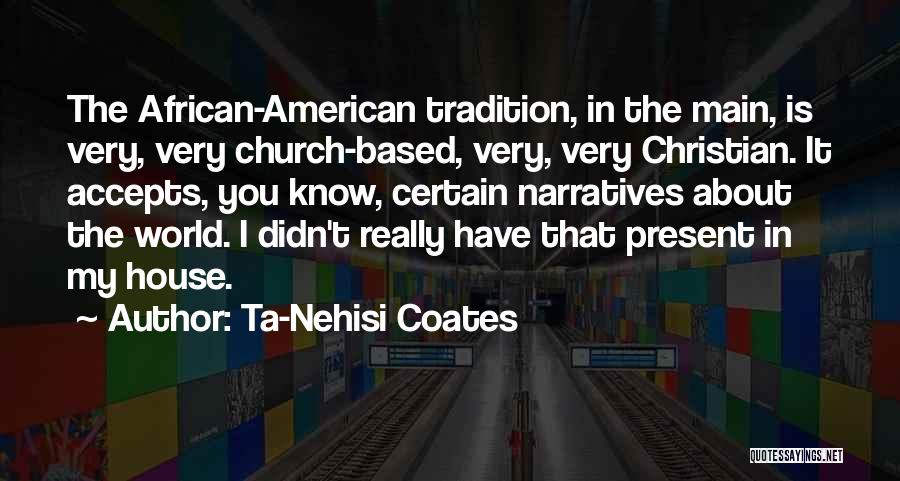
The African-American tradition, in the main, is very, very church-based, very, very Christian. It accepts, you know, certain narratives about the world. I didn't really have that present in my house. — Ta-Nehisi Coates
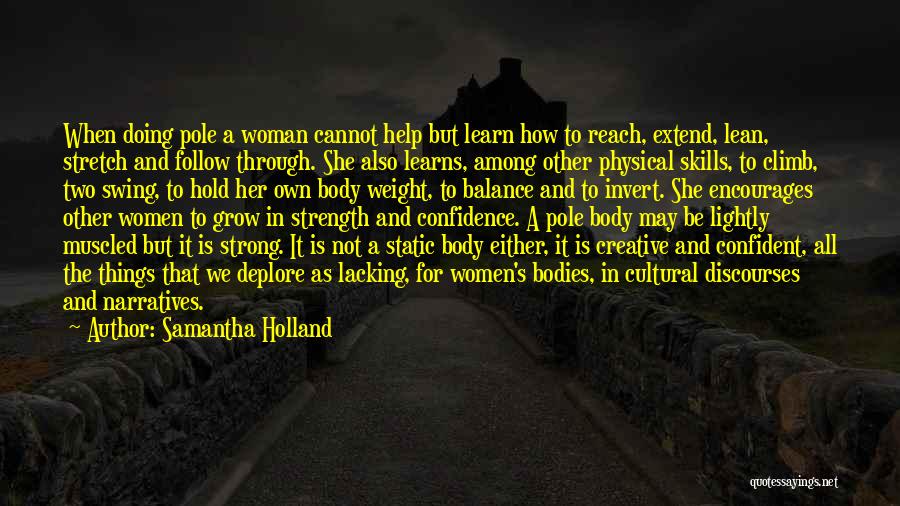
When doing pole a woman cannot help but learn how to reach, extend, lean, stretch and follow through. She also learns, among other physical skills, to climb, two swing, to hold her own body weight, to balance and to invert. She encourages other women to grow in strength and confidence. A pole body may be lightly muscled but it is strong. It is not a static body either, it is creative and confident, all the things that we deplore as lacking, for women's bodies, in cultural discourses and narratives. — Samantha Holland
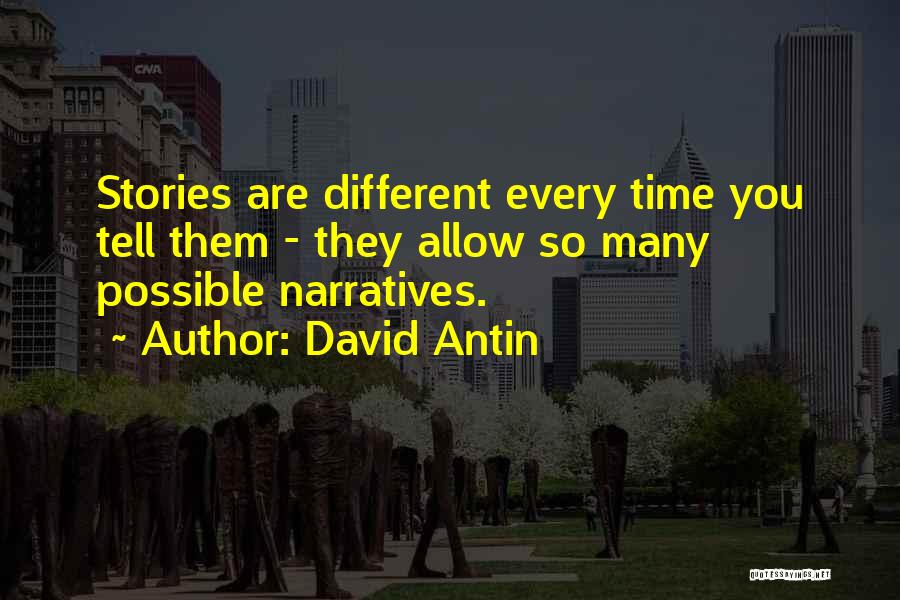
Stories are different every time you tell them - they allow so many possible narratives. — David Antin
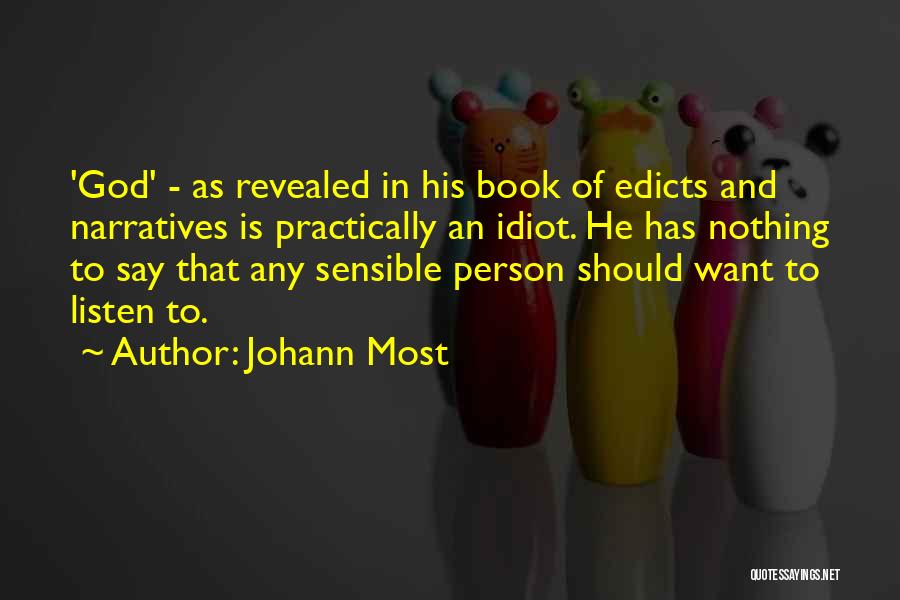
'God' - as revealed in his book of edicts and narratives is practically an idiot. He has nothing to say that any sensible person should want to listen to. — Johann Most
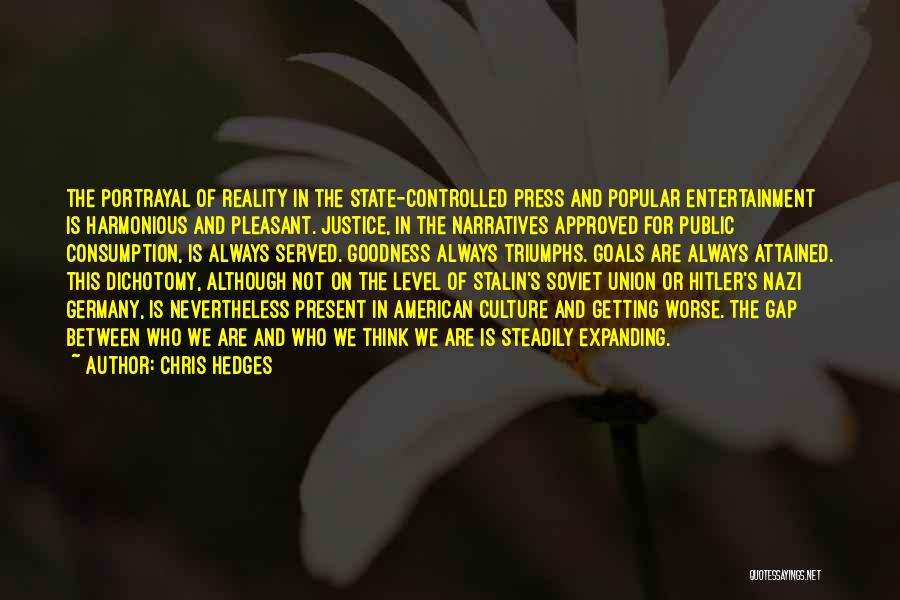
the portrayal of reality in the state-controlled press and popular entertainment is harmonious and pleasant. Justice, in the narratives approved for public consumption, is always served. Goodness always triumphs. Goals are always attained. This dichotomy, although not on the level of Stalin's Soviet Union or Hitler's Nazi Germany, is nevertheless present in American culture and getting worse. The gap between who we are and who we think we are is steadily expanding. — Chris Hedges
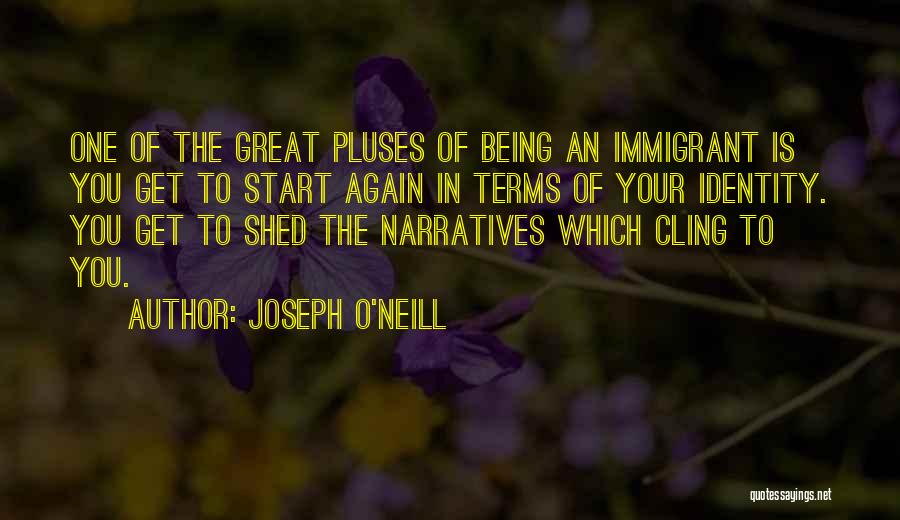
One of the great pluses of being an immigrant is you get to start again in terms of your identity. You get to shed the narratives which cling to you. — Joseph O'Neill
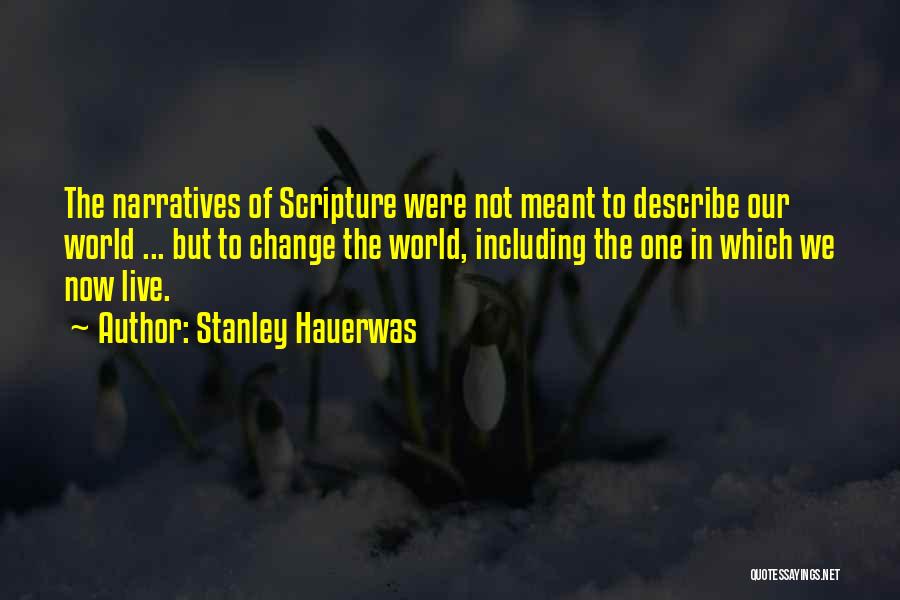
The narratives of Scripture were not meant to describe our world ... but to change the world, including the one in which we now live. — Stanley Hauerwas
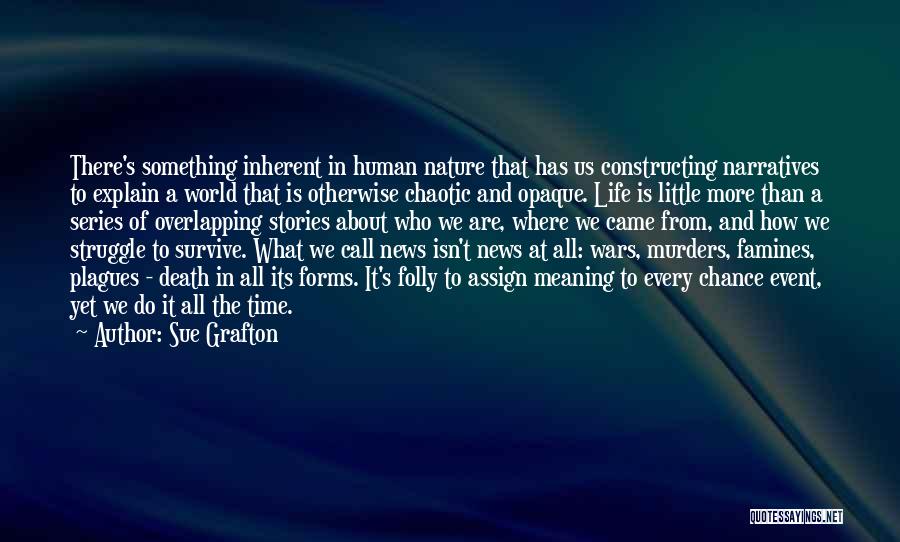
There's something inherent in human nature that has us constructing narratives to explain a world that is otherwise chaotic and opaque. Life is little more than a series of overlapping stories about who we are, where we came from, and how we struggle to survive. What we call news isn't news at all: wars, murders, famines, plagues - death in all its forms. It's folly to assign meaning to every chance event, yet we do it all the time. — Sue Grafton
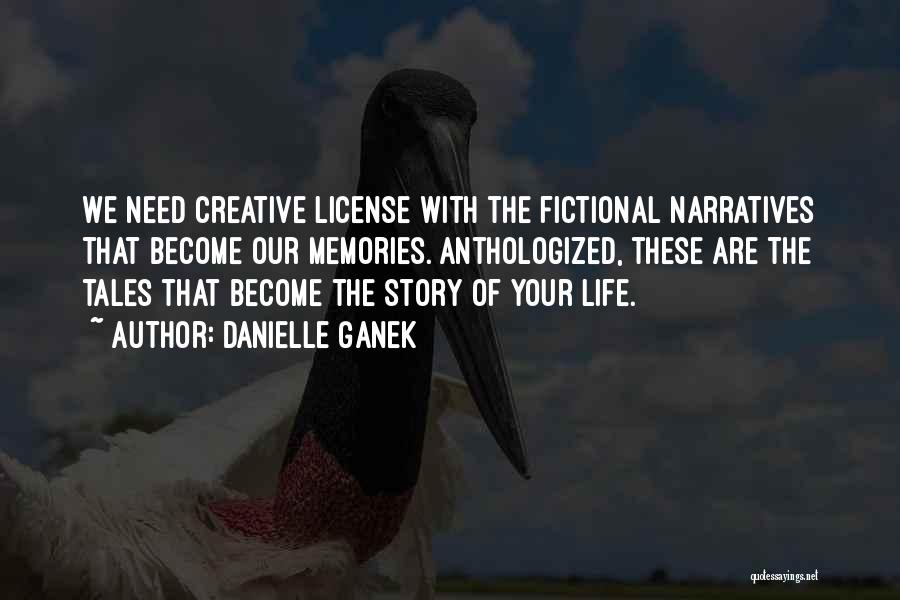
We need creative license with the fictional narratives that become our memories. Anthologized, these are the tales that become the story of your life. — Danielle Ganek
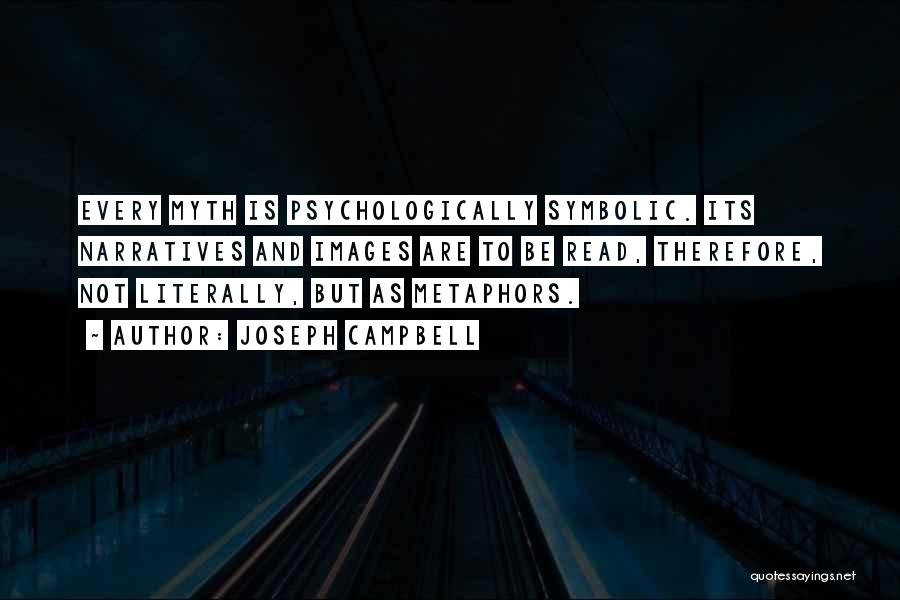
Every myth is psychologically symbolic. Its narratives and images are to be read, therefore, not literally, but as metaphors. — Joseph Campbell

The two chapters of Matthew's Gospel devoted to the infancy narratives are not a meditation presented under the guise of stories, but the converse: Matthew is recounting real history, theologically thought through and interpreted, and thus he helps us to understand the mystery of Jesus more deeply. — Pope Benedict XVI
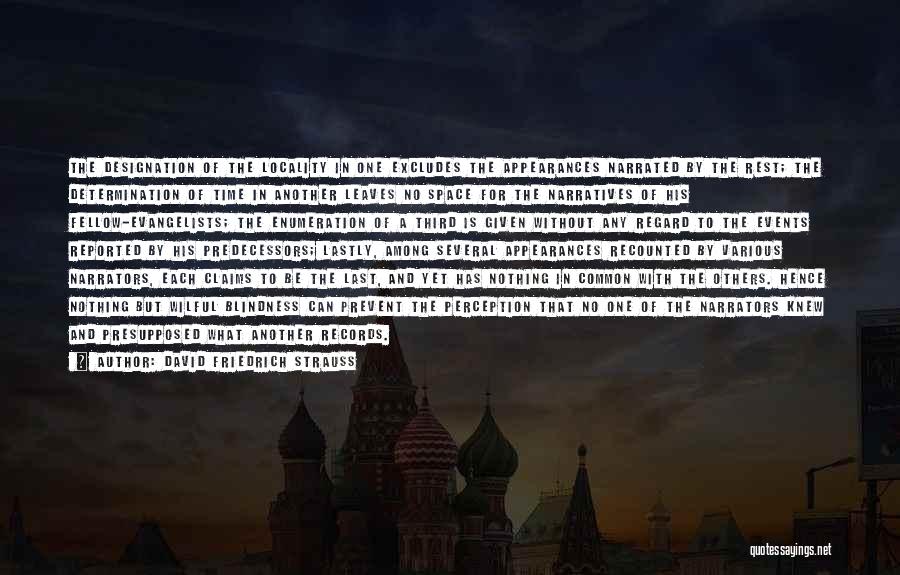
The designation of the locality in one excludes the appearances narrated by the rest; the determination of time in another leaves no space for the narratives of his fellow-evangelists; the enumeration of a third is given without any regard to the events reported by his predecessors; lastly, among several appearances recounted by various narrators, each claims to be the last, and yet has nothing in common with the others. Hence nothing but wilful blindness can prevent the perception that no one of the narrators knew and presupposed what another records. — David Friedrich Strauss






